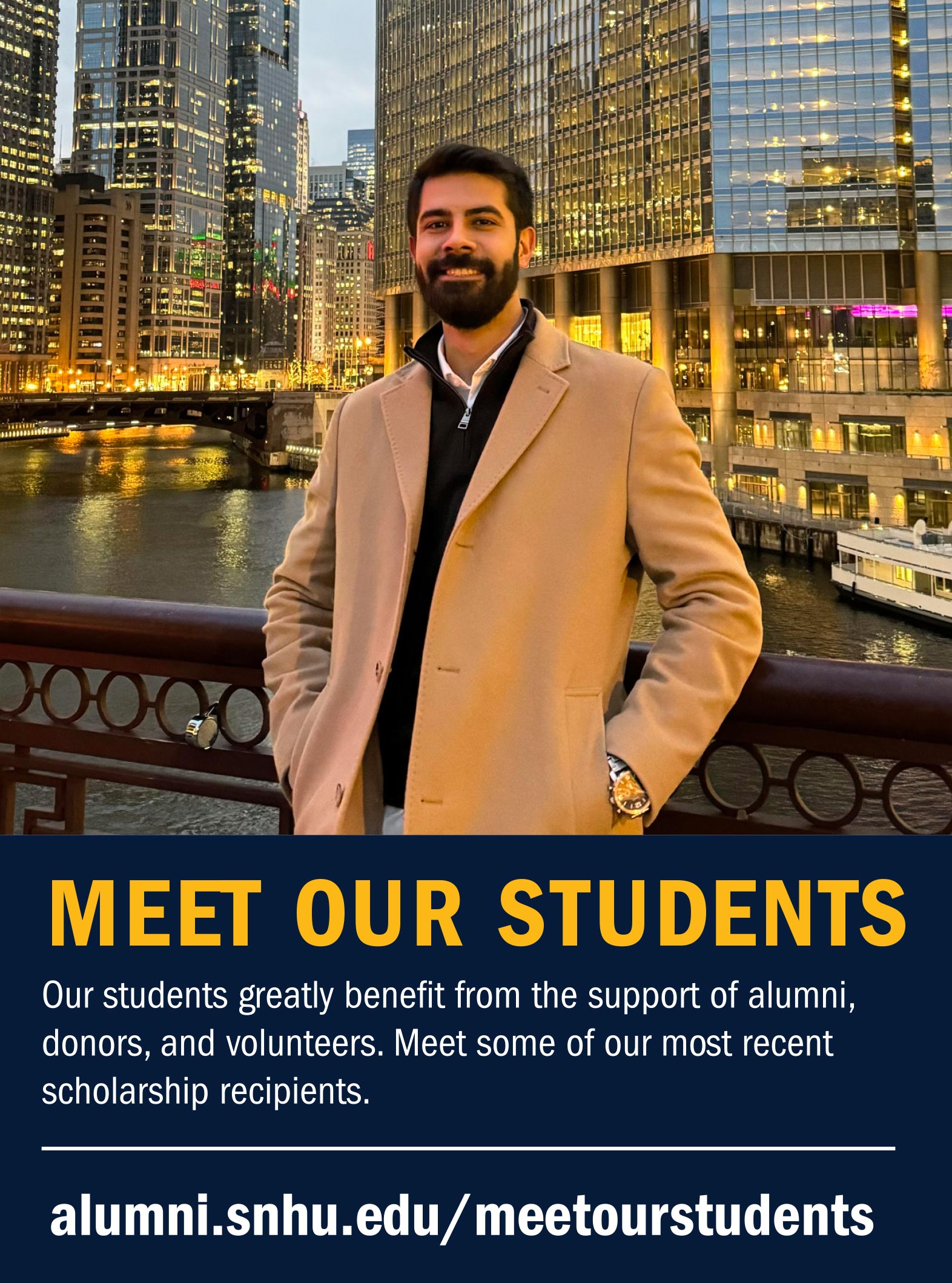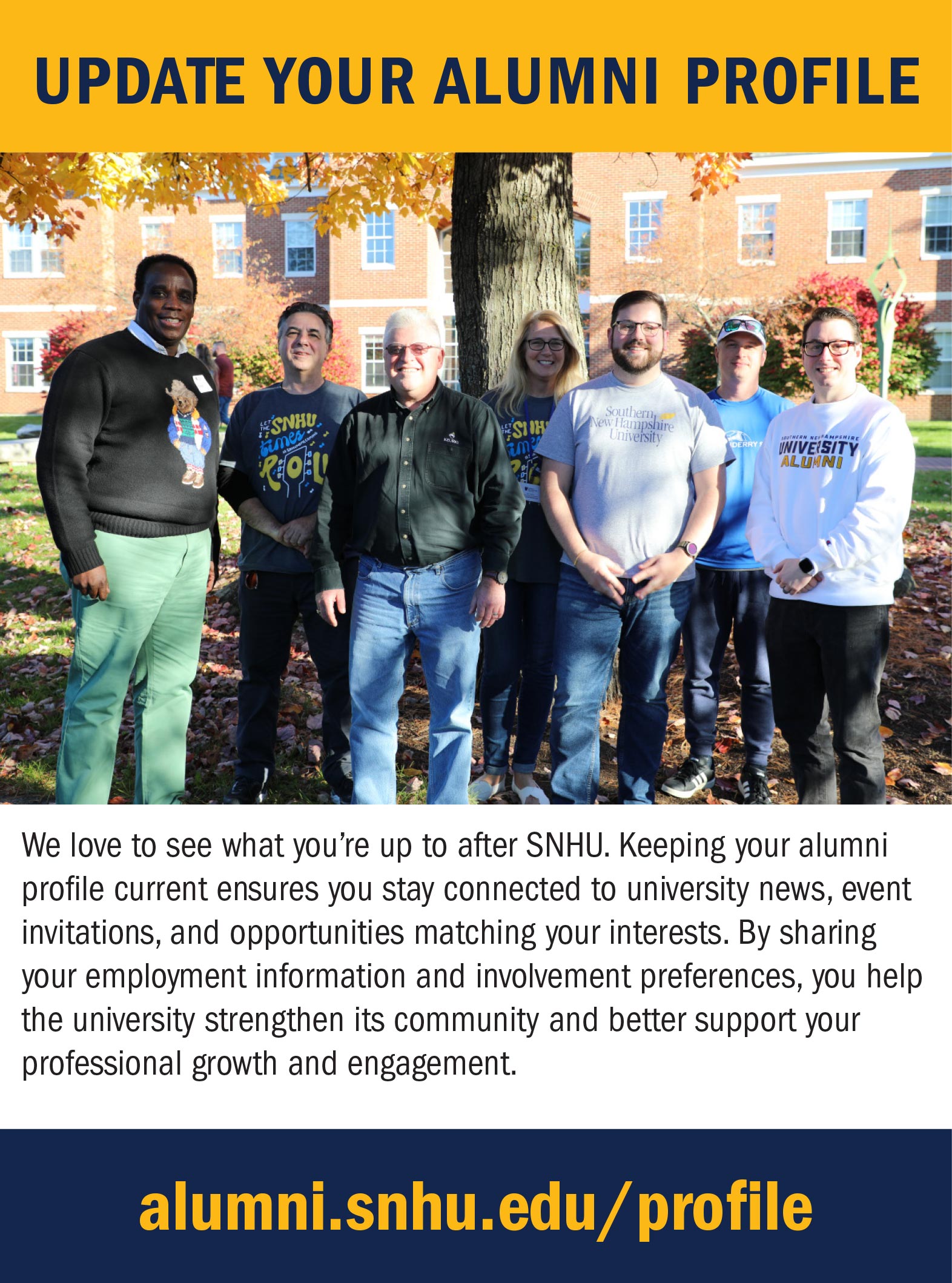A LETTER FROM GABI
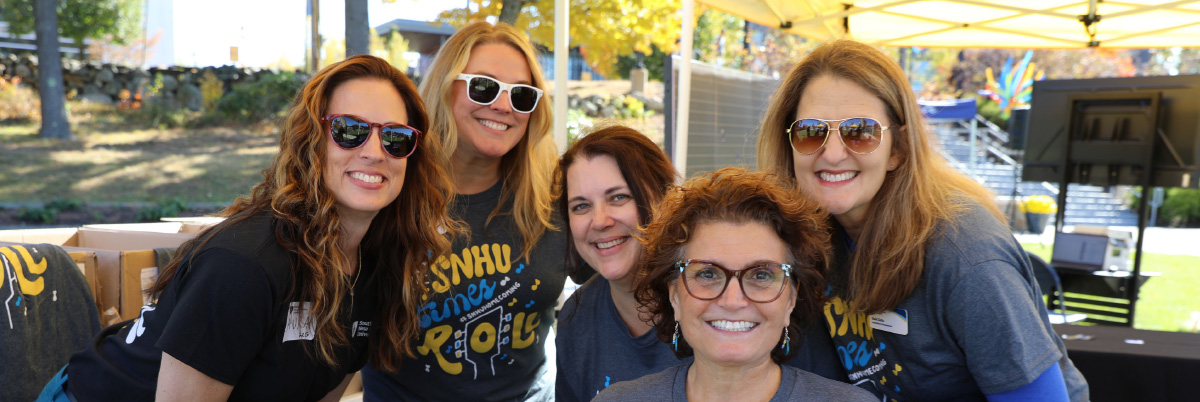
Institutional Advancement has a mission to build community and encourage generosity to advance educational equity and expand opportunity through meaningful engagement. This work is done through engaging with you: our alumni, donors, students, staff, faculty, community partners, and advisors. In the following pages, you will read about how we continue to engage with our ever-growing alumni network, provide meaningful community service opportunities to SNHU students and employees, grow our high school college bound program, and serve countless families in the Manchester area through our Center for New Americans.
The IA team has been very busy this past year with our Founders Day Giving Challenge in September (Happy 92nd Birthday!) and our Giving SNHU Days in December; because of these successful campaigns, we are able to award scholarships that create life-changing opportunities for our students. Homecoming in October was a huge hit, and we have hosted several regional events for alumni, donors, and employees across the country. Our civic engagement work around the election was monumental—we drove more than 90 students to the polls and shared “Get Out The Vote” messages with more than 30 classrooms on campus—illustrating democracy in action. This spring, please join us in a service project as we celebrate our 10th annual Global Days of Service!
SNHU takes pride in being more than just an institution of learning; we are a lifelong community. Our commitment to building a culture of engagement and giving remains a constant in these ever-changing times. We want to provide you with opportunities to stay connected, not only to the university, but also to your fellow alumni. We want to foster a tradition of giving, where your knowledge, time, and resources can help multiply our impact.
Thank you for helping us build a generous community. Welcome to Impact— where our student stories, annual highlights, and contributions reflect you and all that you do for SNHU.
With gratitude,
Gabi Zolla
Vice President, Institutional Advancement
Contents
- A Letter From the President
- A World of Difference: Global Days of Service Celebrates 10 Years
- Leading the Way: SNHU’s Commitment to First-Gen Learners
- Artificial Intelligence at SNHU
- Behind the Beat: Students Gain Experience at Premier Live Nation Venue
- Breaking Through Barriers: College Readiness Program Helps Manchester Students Excel
- Shaping the Future: SNHU’s Campus Introduces Cutting-Edge Biofabrication Course
- Howard Brodsky Joins School of Business as Executive in Residence
- Crossing the Finish Line: Diverse Paths to a Shared Dream
- SNHU Gathers State Leaders to Address Basic Needs for Today’s Learners
- Spotlight on Success: 2024 Alumni Awards
- Generous Community by the Numbers
- A Generous Community in Photos
- Why We Give
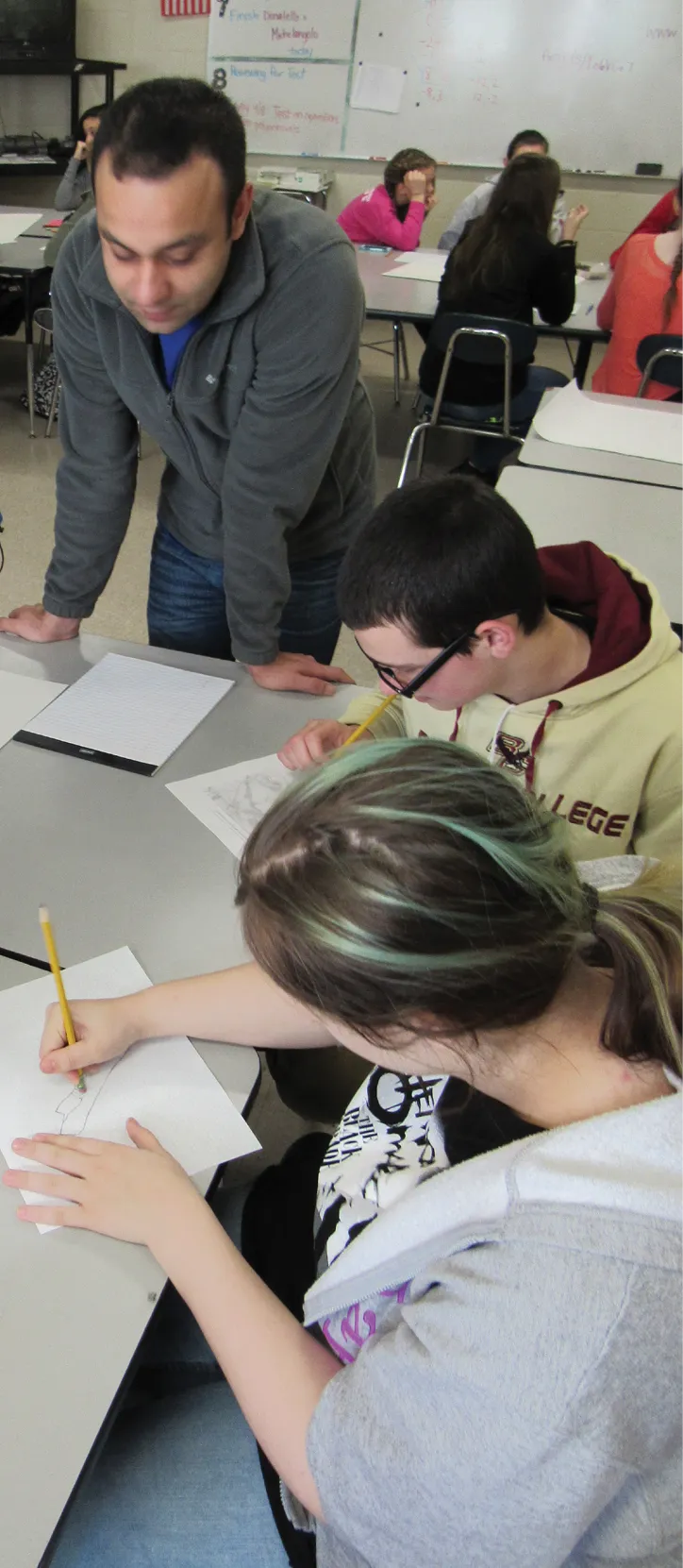
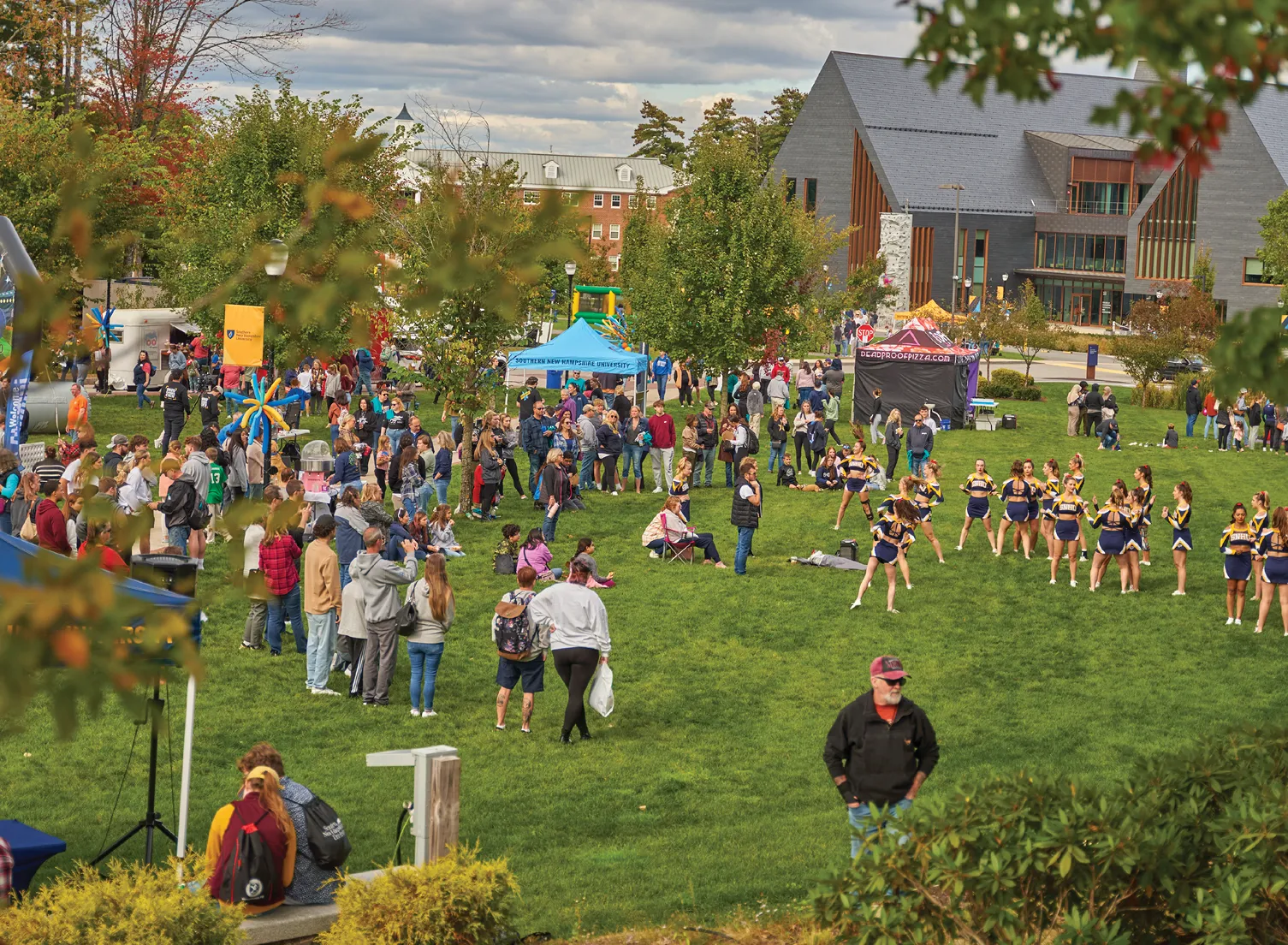
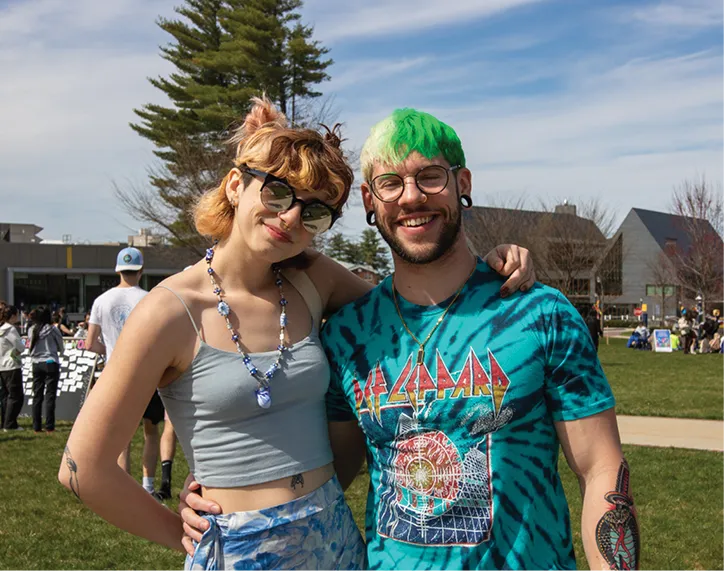

- President and CEO
Lisa Marsh Ryerson - Managing Editor
Erin McGonagle ’15G - Contributors
Brianna Allard - Kristin Atkinson ’24G
- Steve Boucher
- Audrey Bourque
- Melanie Drolet ’16
- Katie Dugan ’20G
- Sajra Dzelilovic ’22 ’23MBA
- Vanessa Karagosian
- Marissa Larkin ’20G
- Courtney Lawson ’16
- Siobhan Lopez
- Libby May ’22MBA
- Lauren Maynard ’17G
- Lisa St. Hilaire
- Shayla Walsh ’08 ’10G
- Victoria Webb ’22
- Graphic Design
Krystal Siemon - Printing
RC Brayshaw - Digital Magazine
Vertiqul
publications.snhu.edu - Impact is published by the Office of Institutional Advancement
Gabi Zolla, Vice President,
Institutional Advancement -
Changes of address may be sent to alumni@snhu.edu or to:
Office of Institutional Advancement
Southern New Hampshire University
2500 North River Road
Manchester, NH 03106-1045 - To learn more, visit alumni.snhu.edu.

A Letter From The President
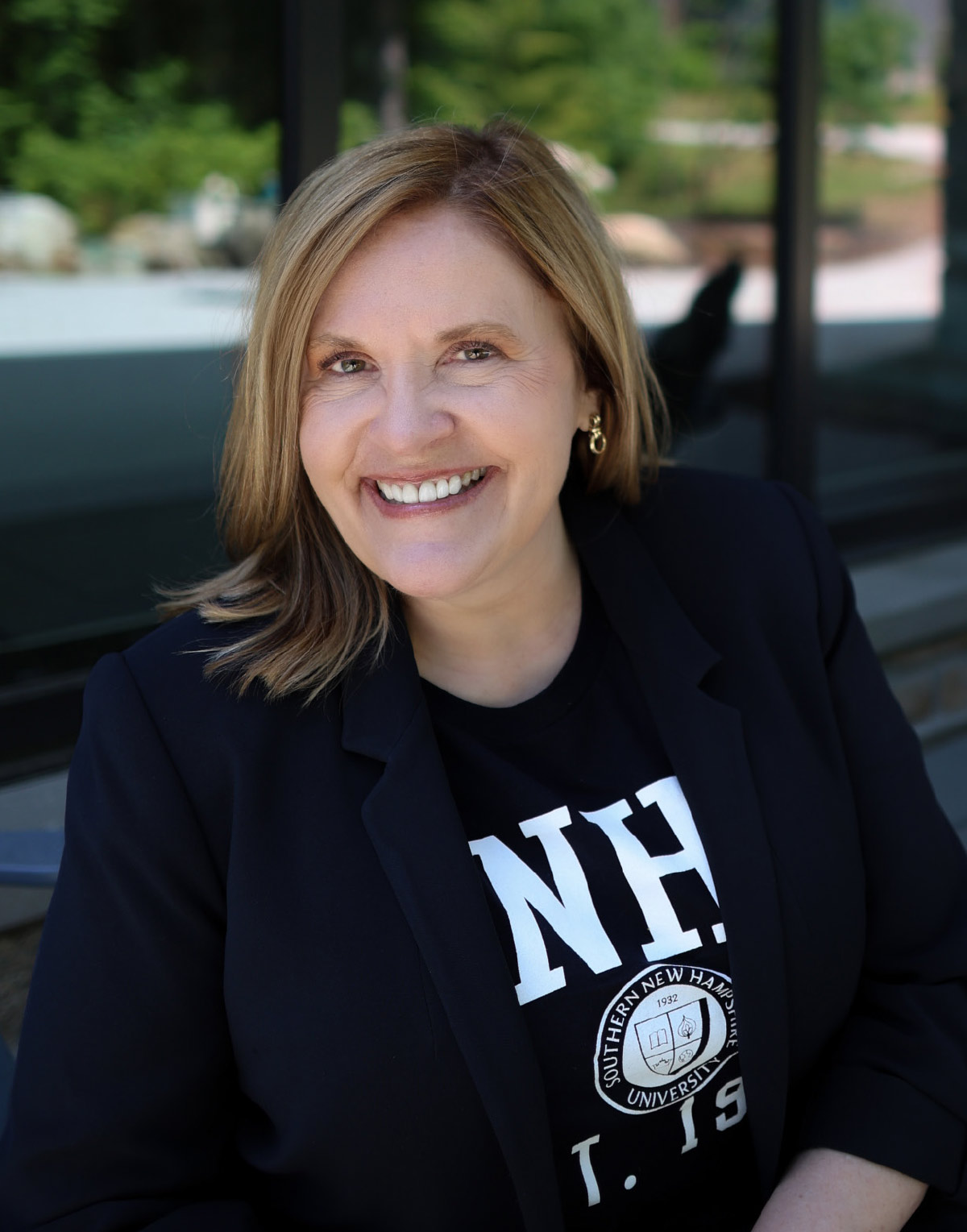
Empowering Our Learners
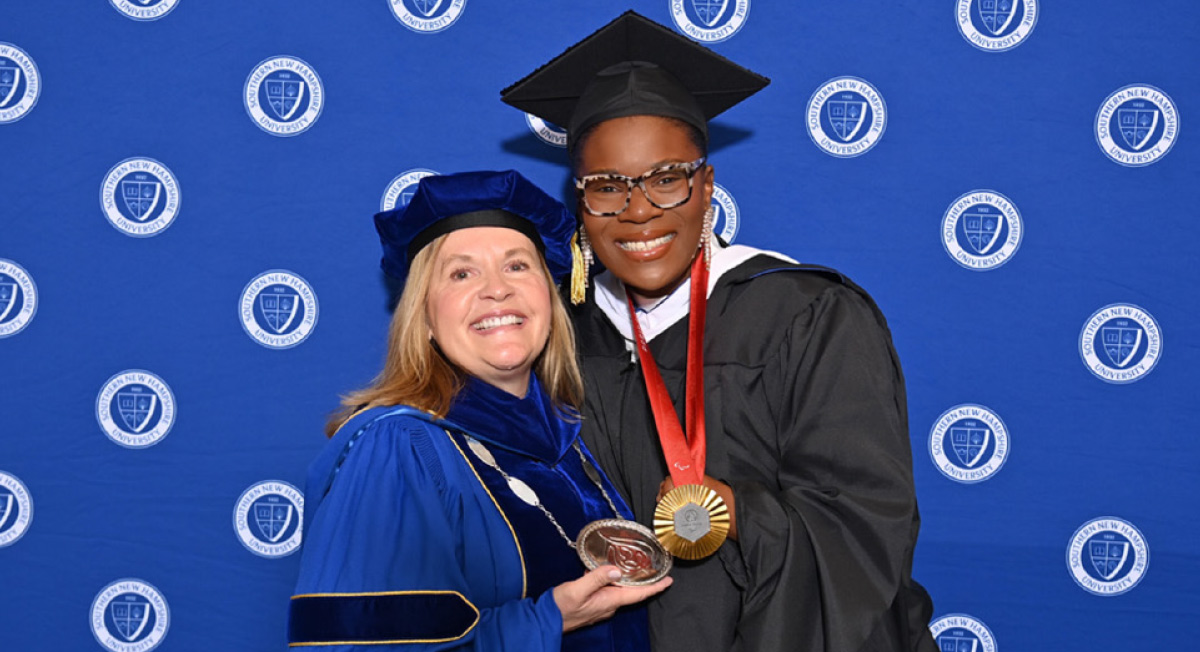
Last fall, SNHU and the Center for Higher Education Policy and Practice (CHEPP) hosted New Hampshire leaders in higher education and politics and representatives from our local community-based organizations to advocate for sustainable access to food, housing, and transportation for students. No student should have to choose between buying food for their family or staying enrolled in higher education. We know if they stay enrolled and complete their degree, they will have better opportunities to experience economic safety and mobility for themselves and their families. Together with CHEPP, we will continue to advocate for more support at the federal level.

Celebrating Together
Homecoming last October was truly a celebration of the SNHU spirit, bringing together our incredible community of learners, alumni, faculty, staff, families, supporters, and friends to celebrate and share stories of SNHU’s impact across generations. I hope you’ll save the date for Homecoming 2025: Oct. 17-19, for virtual and in-person festivities.
In November, I had the honor of presiding over my first Commencement as President—and our 95th as an institution. We welcomed graduates from all 50 states and 58 countries to the SNHU Arena in Manchester, NH, and awarded an astounding 3,500 associate degrees, 17,200 bachelor’s degrees, 5,600 master’s degrees, and 11 doctoral degrees over the course of this Commencement weekend. I had the pleasure of spending time with many of our graduates, and I hope you’ll read some of their stories on these pages. I’m proud of their accomplishments and excited for them as they join our alumni community.
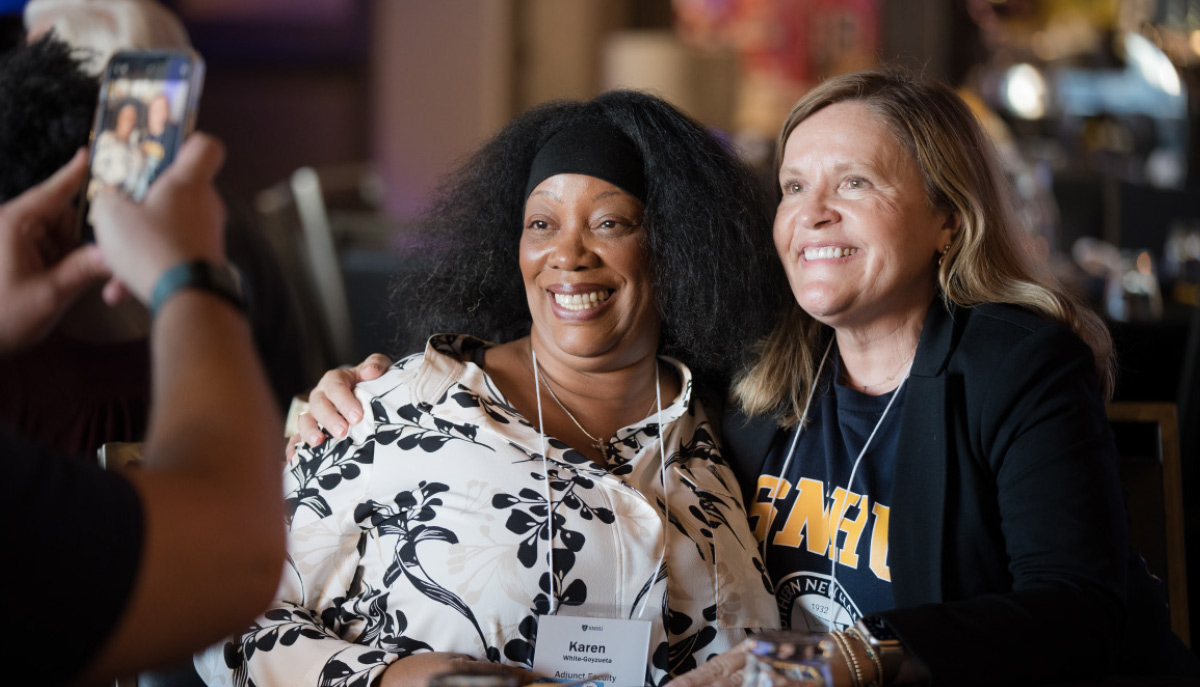
Reflecting on Leadership
Looking Forward
Thank you for the many ways you support SNHU students and serve in our generous community. I look forward to our shared work ahead!
With gratitude,

President
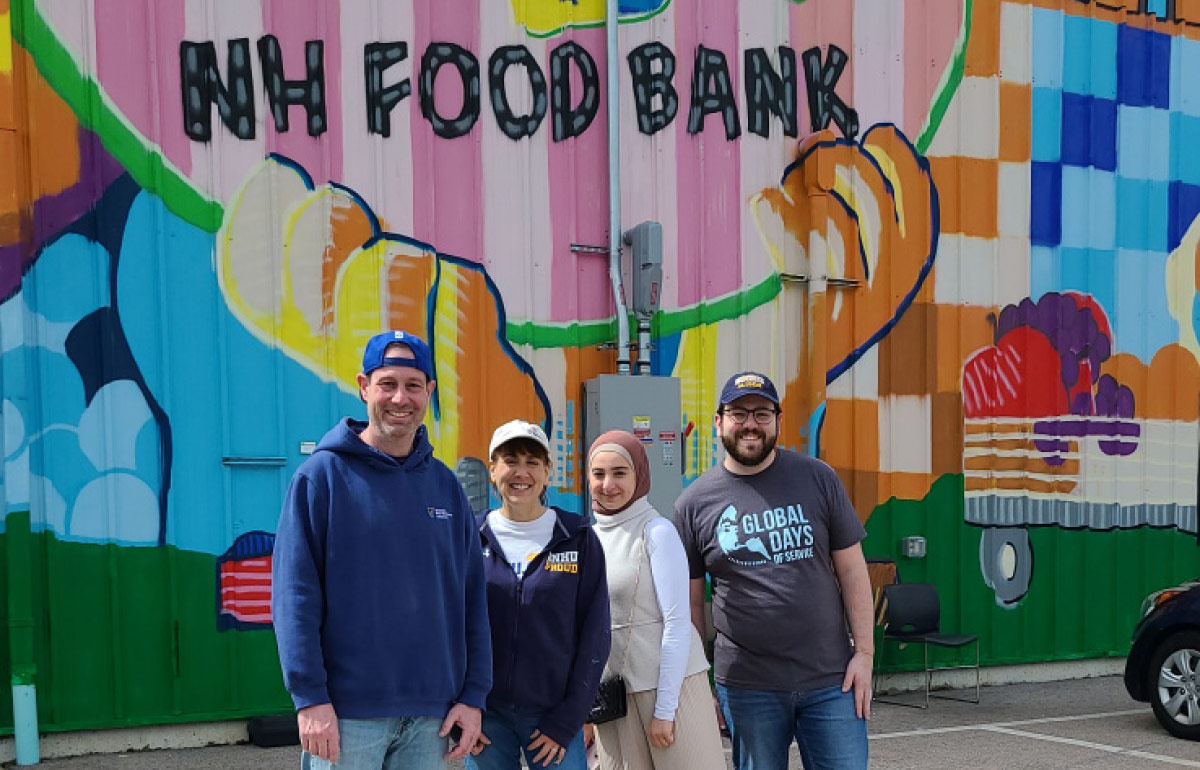
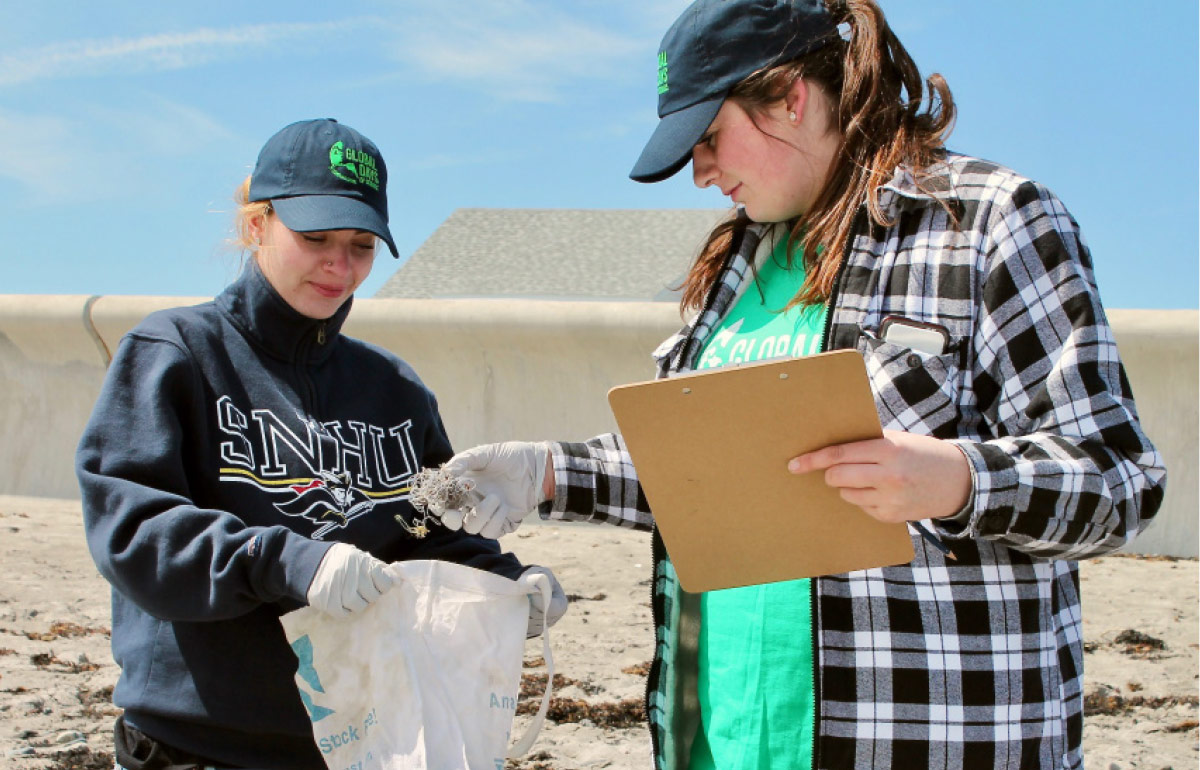
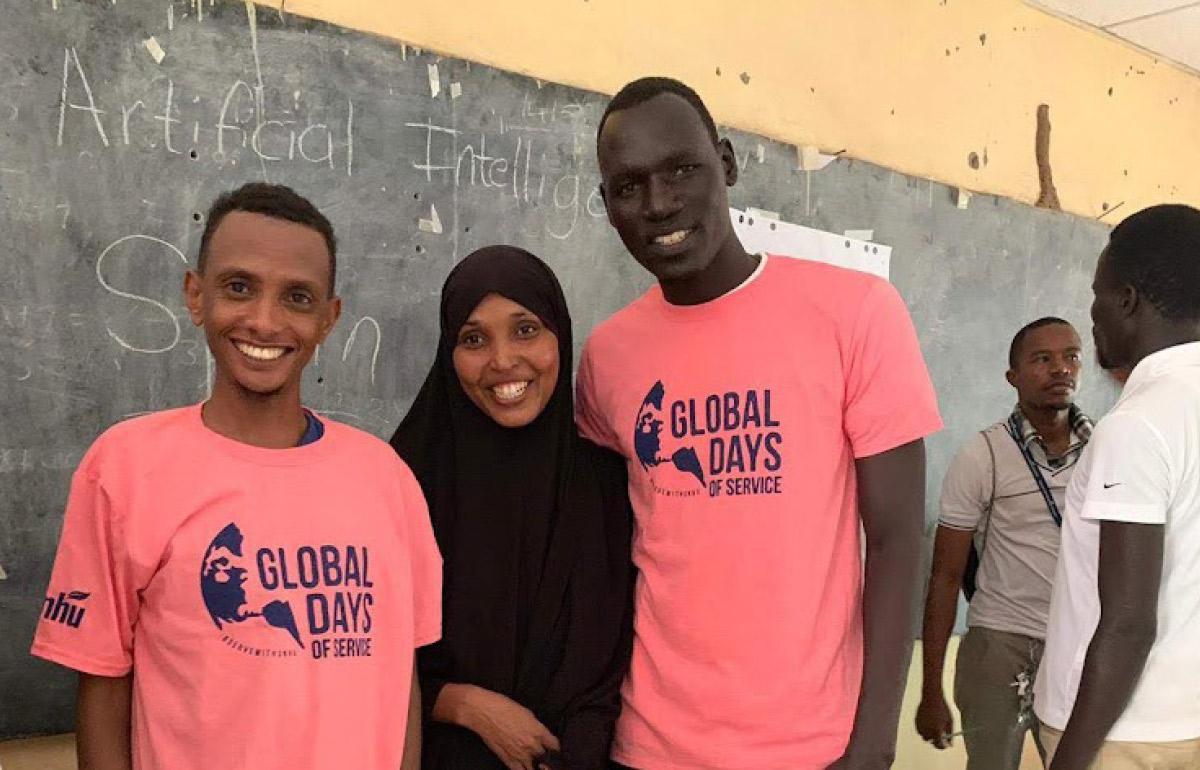
A World of Difference
Global Days of Service Celebrates 10 Years

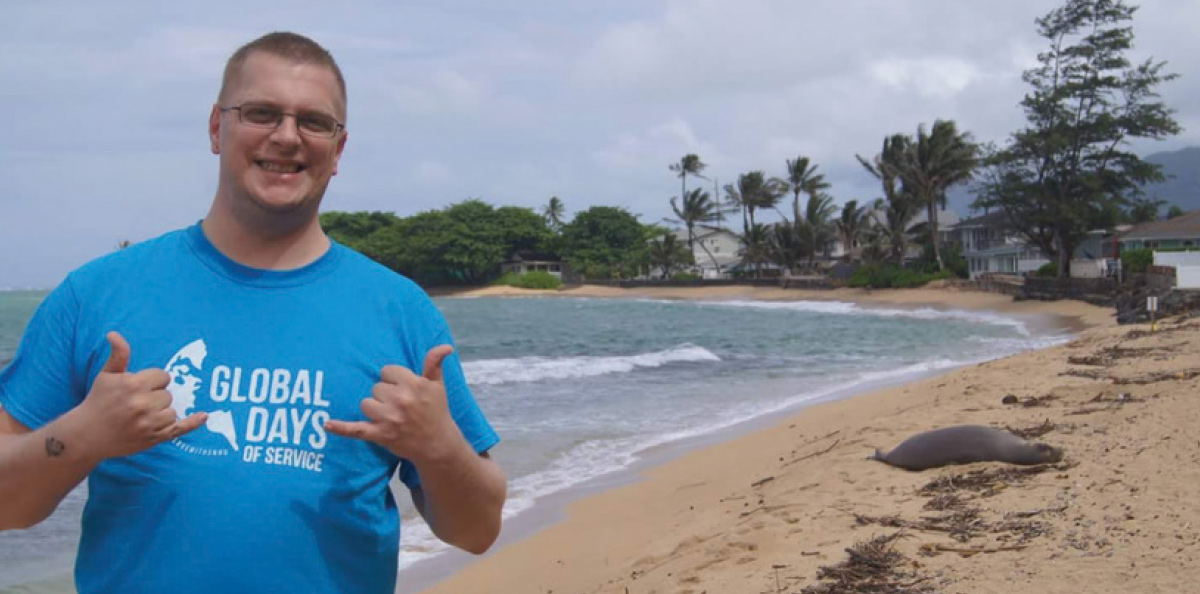
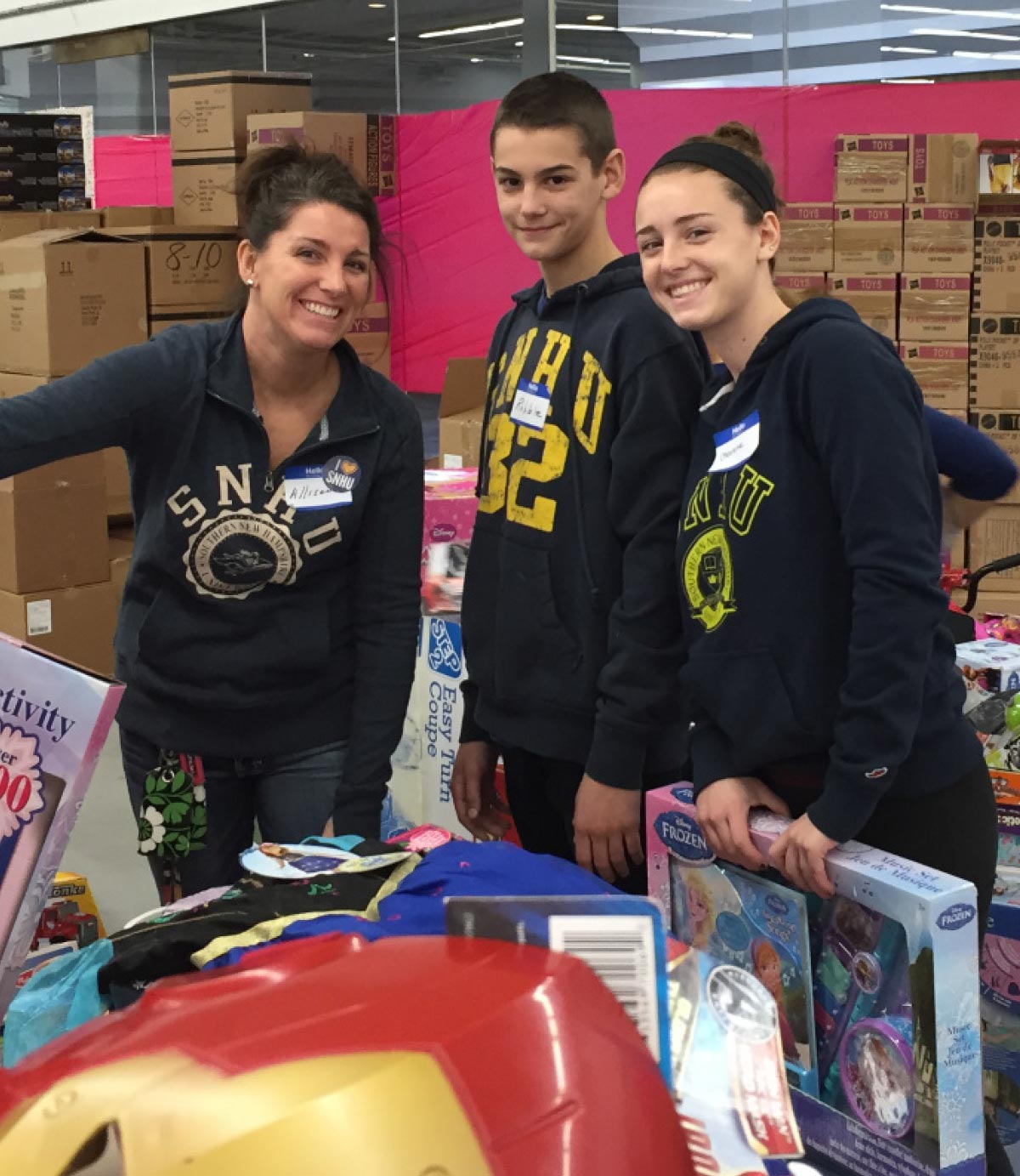
Roots Before Branches
Service has been a cornerstone of SNHU’s history. One of the first student clubs established at the New Hampshire Accounting and Secretarial School was a fundraising-focused group, the March of Dimes Club. In 2005, Dr. Paul LeBlanc established The Center for Community Engaged Learning, an office dedicated to connecting students with service opportunities, now known as The Chandler Center. As that center grew and programming expanded over the years, many students saw community engagement as an integral part of their SNHU experience.
In 2015, there was an opportunity for local alumni to engage with campus-based students on an Alternative Break trip to New Orleans. This coincided with an increased interest in community service events for alumni and current students, both on campus and online. Eager to explore ways to intentionally connect the SNHU community, Sara Telfer, director of Alumni Engagement, shared the concept of a university-wide community service event with colleagues from Online Engagement (now the Office of Student Involvement) and Center for Community Engaged Learning. Tiff Fifer ’00 and Elizabeth Richards were quick to embrace the idea.
“I remember meeting with her in the coffee shop on campus when she said, ‘So I have this idea, and I want to know if you think we could pull it off,’ and then she told me about Global Days of Service,” said Elizabeth Richards, assistant vice president of The Chandler Center. “I loved it immediately. It was bold and ambitious and exciting.”
With the blessing and support of her colleagues, Sara set a goal of 10 projects to take place that April, tapping on SNHU community members to spearhead each.
Alumna Danielle Dalton ’12 ’16G was a remote employee based in California when she first learned about Global Days of Service. Being new to the area, Danielle was eager to take part and find community.
The first year was successful, with a goal-exceeding 15 service projects taking place, each organized by alumni, employees, and students from online and campus programs.
“Global Days of Service was well received, and we all agreed that it should continue annually,” Sara said. “We have tweaked our approach since then, but the root of Global Days of Service is evident in how it still continues to operate today.”
That same year, SNHU launched the Volunteer Time Off (VTO) program for its employees. Recognizing the importance of serving the communities in which we live and work, staff and faculty could take up to eight hours off annually to volunteer at a nonprofit organization of their choosing. Since then, many employees utilize their VTO time to participate in Global Days of Service projects with their colleagues across the country.
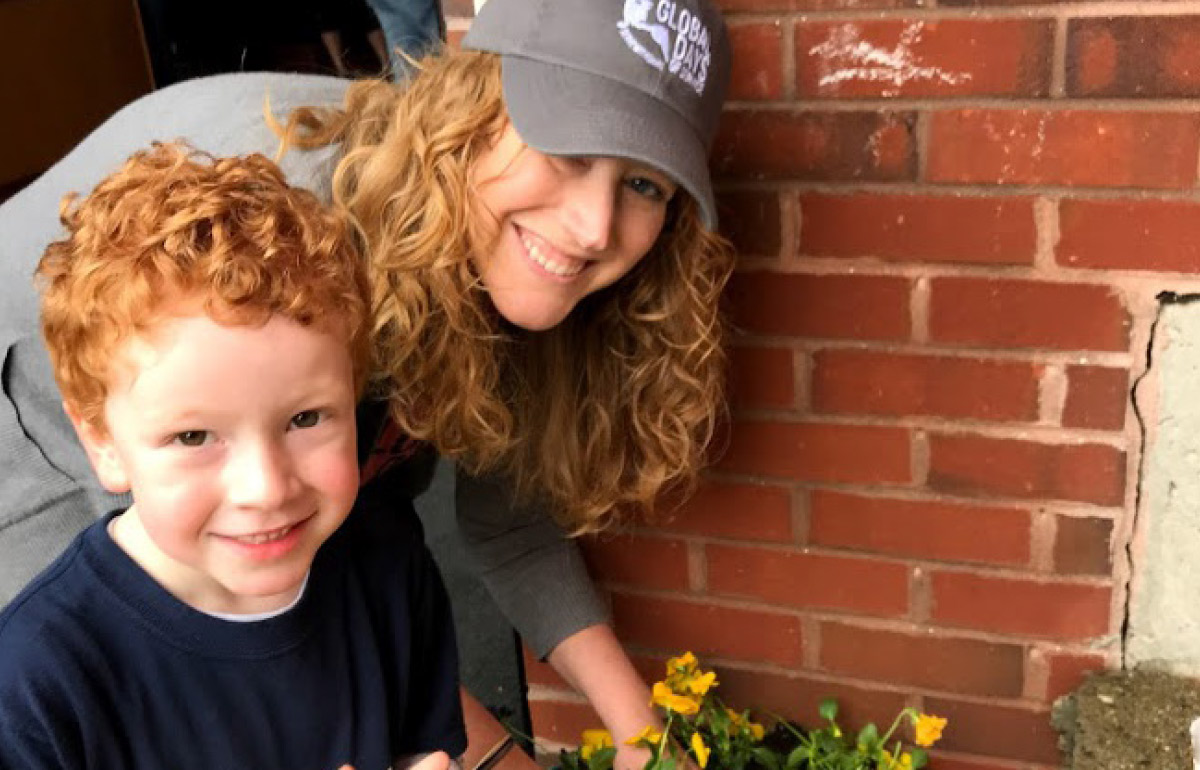
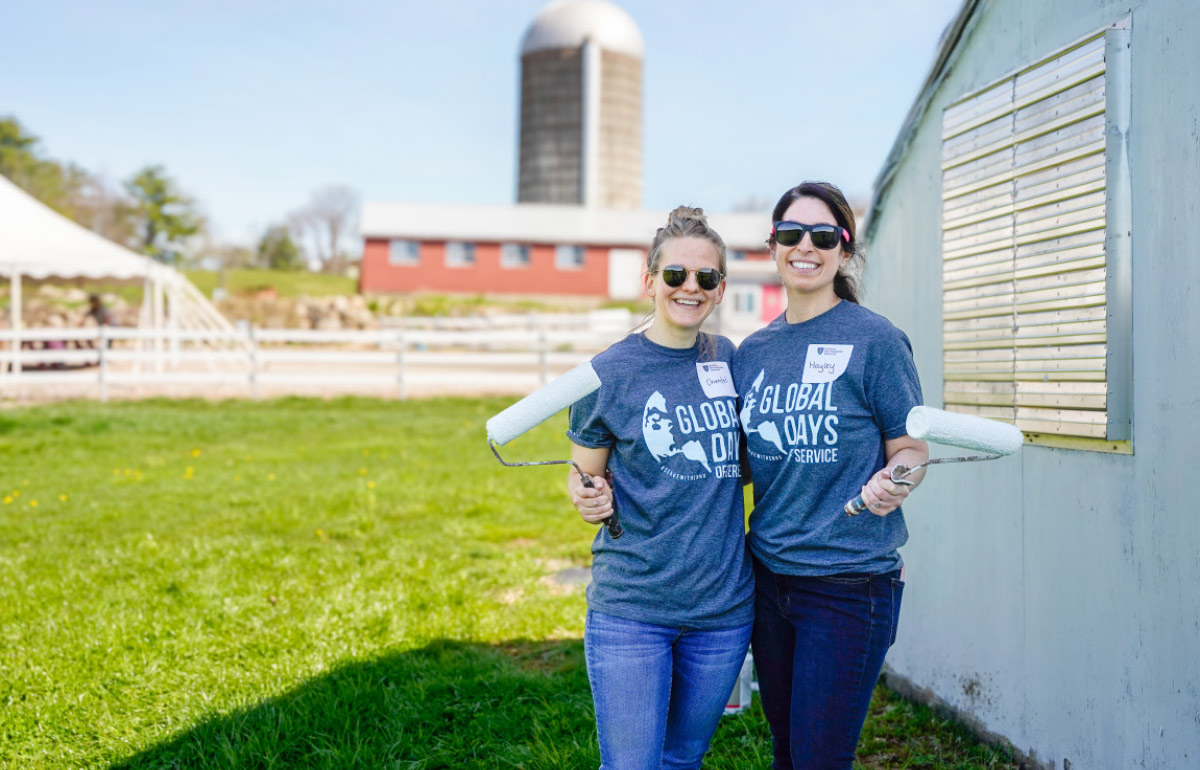
Growth in Numbers
In March 2020, the 5th year of Global Days of Service came to a halt when precautionary measures were taken due to the COVID-19 virus. In-person gatherings were discouraged, which meant that projects could not safely take place.
Faced with the challenge of shifting to a virtual experience, the planning committee expanded the month-long event to span four months in 2021, offering flexibility and more opportunities to engage.
Each month focused on a different societal issue: hunger, shelter, environmental justice, and the pandemic’s essential workers. Virtual educational sessions and do-it-yourself (DIY) projects were offered in tandem, related to that month’s theme.
DIY opportunities included projects like the SleepOut movement, where volunteers could experience sleeping outside and have meaningful conversations about shelter and homelessness. After seeing a positive response to the DIY projects, the planning committee has continued to offer them as part of Global Days of Service.
“I think it was meaningful to folks who were stuck at home during that time to still be able to take part. It’s become a flexible program in terms of the different ways people can participate,” Sara said.
Evergreen Connections
“Every year my involvement has looked a little different, but the spirit of building relationships with other members of the SNHU community remains steadfast,” Danielle said. “Being able to support organizations that help others is always something that I will prioritize and look forward to.”
Sara believes that taking part in service is an equalizer. “Everybody is there for the same reason, to do something beneficial for their community,” Sara said. “We hoped people would feel like it was accessible to them no matter how they fit into the larger picture.”
Global Days of Service wraps up at the end of April. As service hours are tallied, beaches are clean, and food gardens planted, something else continues to bloom at SNHU—lifelong connections. To Sara, the framework of GDS allows for participants to make meaningful connections in the name of service—and drives the enthusiasm seen in volunteers year after year. Since 2016, more than 52,000 hours can be attributed to SNHU Global Days of Service, from cleaning up beaches in Hawaii, to gathering supplies for a refugee camp in Rwanda, and chopping firewood in Maine.
“Sara has never wavered from her vision and has stayed committed to the idea that serving others is a great way to bring a community together,” said Elizabeth.
The impact of Global Days of Service on the SNHU community, and beyond, is undeniable and is made possible thanks to the collective dedication of all involved. This spirit of collaboration and community is forever etched in the foundation of Global Days of Service.
Global Days of Service 2025 takes place throughout March and April. Visit alumni.snhu.edu/serve to make this our most impactful year yet!

LEADING THE WAY

Supporting First-Generation Students: A Collective Journey at SNHU
Building Momentum
This engagement has driven tangible outcomes at SNHU, including the creation of SMART goals that enhance faculty and staff training, provide personalized student outreach, and strengthen first-gen learners’ sense of belonging and navigation skills. SNHU also contributed to the national conversation by authoring blogs about its innovative programs, such as its approach to online first-gen student support.
Introducing a Pre-Matriculation Program on Campus
The program also offered opportunities for students to build peer connections and relationships with advisors and staff, creating a supportive community even before classes began. One student shared, “I didn’t realize how much I didn’t know until this program. It helped me feel prepared, and I met people who made me feel like I belong here.”
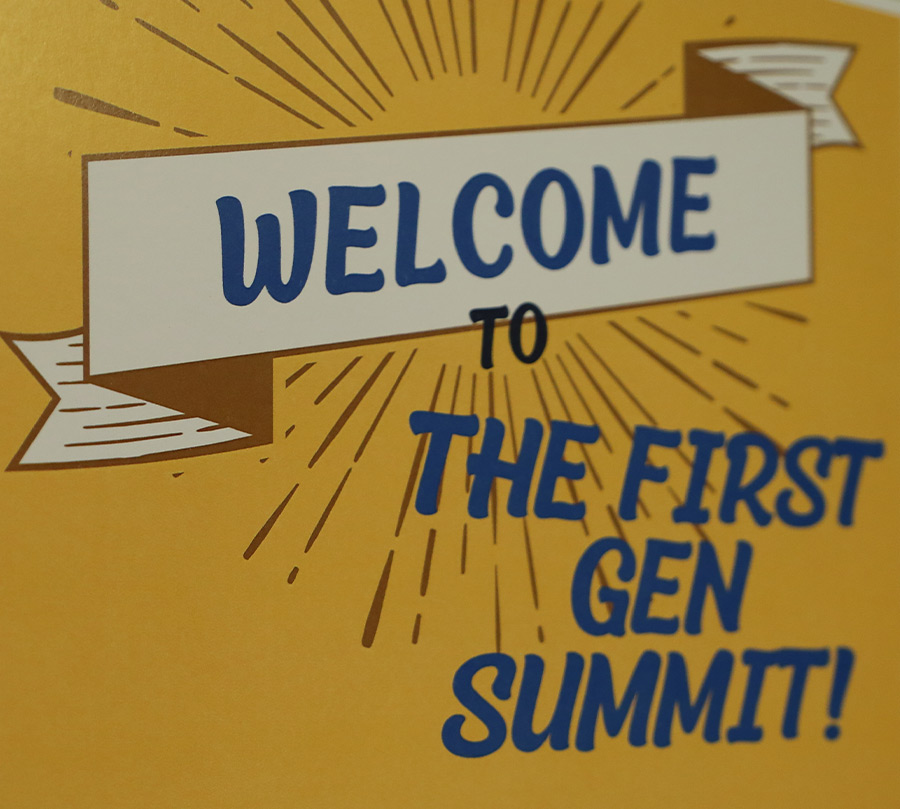
Celebrating First-Gen Success
The summit spotlighted SNHU’s vibrant first-gen community and left a positive impression on attendees—especially current SNHU junior, Silvonna Silvestre.
“It was a powerful experience and so inspiring to connect with other first-gen learners and share our stories. SNHU’s commitment to first-gen learners, exemplified by events like the summit, has been crucial to my success,” Silvonna shared. “It made me realize I’m not alone in this journey.”
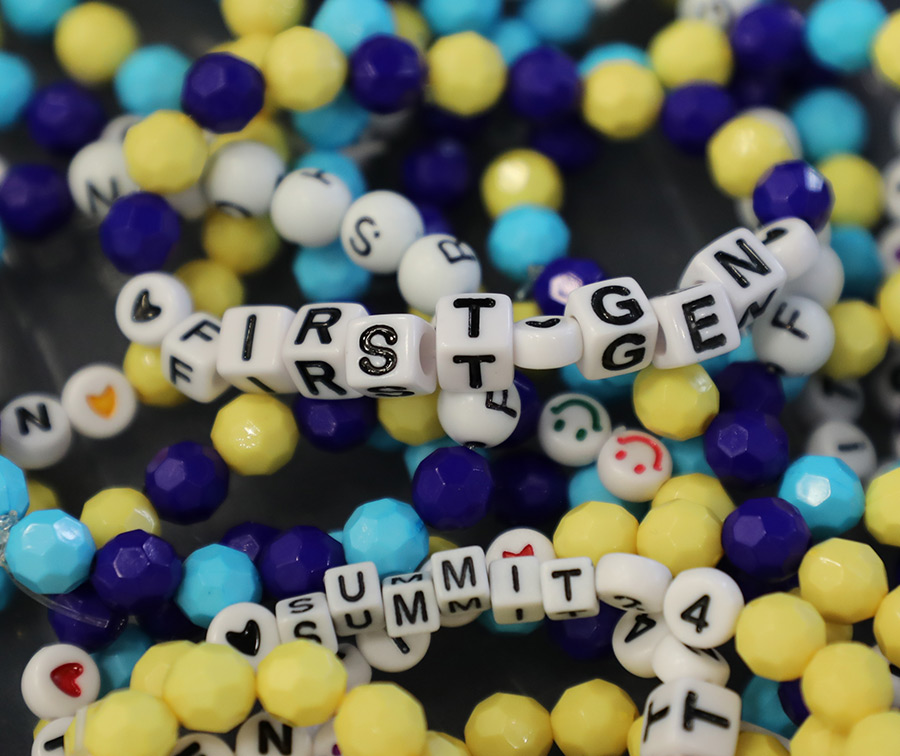
A Student’s Perspective: Alphie’s Story
“Growing up on the reservation, being first-gen means doing something your family has never done before. It’s about setting higher expectations and fighting against the struggles we’ve faced,” said Alphie.
Alphie highlighted the role of staff members like Lynn Zlotkowski, who provided unwavering support during challenging times.
“SNHU has been patient with what I didn’t know—whether it was financial aid or building a plan to succeed,” said Alphie. “The staff noticed when I was struggling and stepped in to help. I probably wouldn’t have succeeded as much as I have without their support.”
The resources available through initiatives like the First-Gen Summit, Alphie said, provided clarity and confidence.
“It’s nice to know first-gen students have access to so many resources,” said Alphie. “Knowing I’m someone my cousins can look up to makes me proud.”
Identifying and Supporting First-Gen Learners
Future efforts include the exploration of more opportunities for peer-to-peer engagement, personalized outreach, and understanding the unique experiences of the student journey. There is special interest in supporting the various intersections of the first-gen identity like Latinx and Black learners.
Looking Ahead: A Shared Vision
Lynn Zlotkowski, a passionate advocate for first-gen students, envisions SNHU as a leader in this space.
“I want SNHU to be a destination for first-gen students. I want them to know that if they come to SNHU, they will be seen, they will be celebrated, and they will be supported,” she shared.
Looking to the future, The President Paul J. LeBlanc First-Generation Scholarship Fund—established in honor of former SNHU president Dr. Paul LeBlanc—represents a significant step forward in addressing the #1 barrier to retention for first-gen students: financial challenges. With $219,000 raised during its initial campaign, the fund is poised to provide meaningful support to both campus and online students starting in the 2025-26 academic year.
The scholarship will offer direct financial aid, easing the burden for students who might otherwise struggle to persist in their academic journey. This initiative underscores SNHU’s long-term commitment to making higher education accessible for first-generation learners.
The fund remains open for contributions at any time. Each donation, no matter the size, directly supports first-generation learners and amplifies SNHU’s mission to create opportunities for all. To honor Dr. LeBlanc’s legacy and invest in the next generation of first-gen students, you can donate by visiting alumni.snhu.edu/first-gen.
“As a first-generation college graduate, I know that college is not a given for everyone, and I feel the responsibility to be sure that it is. That’s why I’m a proud donor to The President Paul J. LeBlanc First-Generation Scholarship,” shared President Lisa Marsh Ryerson.
As SNHU continues to expand its initiatives, from pre-matriculation programs to centralized resource hubs, the university is forging a path where first-generation students can thrive. The collective efforts of faculty, staff, and donors demonstrate that when first-gen learners succeed, the impact reaches far beyond the classroom.
As a student panelist shared during the First-Gen Summit, “We’re not alone in this journey.” SNHU continues to demonstrate that a united and purposeful community can unlock boundless opportunities for first-generation learners.

Artificial Intelligence at SNHU
SNHU AI Grant: Exploring Opportunities
Individual faculty members were encouraged to explore the potential of artificial intelligence within their own classroom work and propose projects that demonstrated a strong commitment to research, community engagement, pedagogy, and educational development.
Proposals ranged from exploring ways to motivate and engage students in research to creating immersive experiences that could provide in-the-moment support and improve student learning experiences.
Latimer Pilot: Emphasizing Cultural Awareness
In addition to its ability to assist in various tasks including brainstorming, drafting ideas, analyzing data, and improving communication and decision-making processes, Latimer puts a unique emphasis on inclusivity and cultural awareness. This AI tool incorporates narratives from Black, Indigenous, and People of Color (BIPOC) communities to focus on promoting diverse perspectives and actively works to reduce biases in its responses, providing a more equitable tool for both students and faculty.
SNHU has expanded this pilot to run through April 2025 to allow the AI team to collect survey data and understand the impact Latimer is having on student learning and academic outcomes.
These insights will help inform how these tools can serve the SNHU community by determining participants’ comfortability with these tools, knowledge of ethical usage, and whether Latimer should extend to a broader audience and be a long-term AI solution for the university.
Penny the Chatbot: Encouraging Civic Engagement
This AI tool was used to ask students if they wanted voting information, and of the students who responded, more than half opted in to receive the voting resources. The chatbot was able to answer questions around voting in a state other than where students resided, provided election day details, and sent reminders for how students could get to the Manchester or Hooksett polls with shuttles through The Chandler Center.
The Future of AI Integration
Behind the Beat
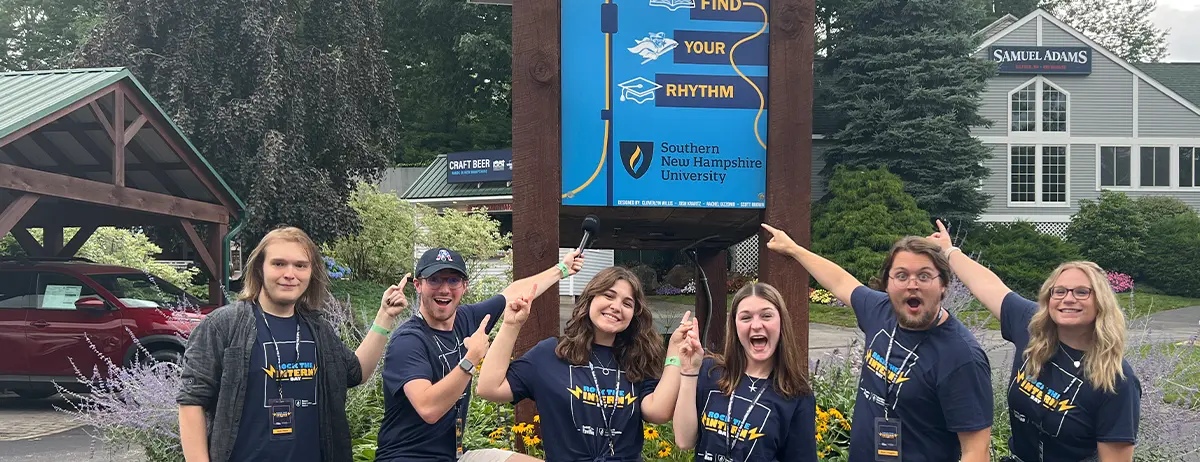
Solid career outcomes, unmatched portfolio pieces, and a newly established nationwide hiring program are all part of this amazing partnership that has encompassed the following majors and program areas: communications, graphic design, music, business, construction management, sustainability, videography, and culinary arts.
Since day one, the BankNH Pavilion project has been “for the students” and “by the students.” Every SNHU banner ad, 20-foot upright design, or video shown on the giant screens at the award-winning Gilford, NH-based live music venue has been created by students in an effort to provide them with portfolio pieces that can be shown to prospective employers upon graduation. Similarly, students have taken part in day-long sessions with construction CEOs and project managers who’ve shared their insights about multi-million dollar Live Nation projects, guest speakers who came to business classes to learn from Live Nation human resource and accounting professionals about business transactions with world-renowned management teams, and interviews with musical artists ranging from keyboardist Mikel Paris of million-record-selling artist O.A.R. to vocalist Shaun Morgan of MTV Best Alternative Artist band Seether.
Kylie Jackson ’24 is one of 58 SNHU alumni who currently work for Live Nation. Jackson was a Communications Lab student assigned to the project as a sophomore before becoming a project lead intern as a senior. As a project lead, she mentored graphic design students, sharing her experiences and performing her project oversight duties at such a high level that she fulfilled her goal of securing employment in the music industry as a Live Nation Brand Manager for Contracting Services upon graduation.
“In the last semester of my senior year, it was amazing to end my undergraduate degree in a full-circle moment,” she said. “I learned and grew so much throughout my internship as a student, a leader, and someone who is pursuing a career in the music and entertainment industry. The internship changed my life in the span of four months, and I cannot express enough my gratitude for this exposure to my dream career.”
Communications and Media Arts Department Chair and Associate Professor Tracy Dow has seen the positive impacts of this partnership on SNHU students. “The Pavilion really treats our students well, and they gain so much from the experience,” she added. “We find it important to stress that we view this collaboration as a continual partnership. We see this as a way to engage students throughout their time spent at SNHU and hope that these experiences help students see how they can apply skills learned in the classroom to real-world situations and environments.”
This year’s “Rock the Intern” student showcase will be held on May 25 as part of the Kane Brown concert at the BankNH Pavilion.
Experiential Learning Opportunities Bridge Theory and Practice
The Career & Professional Development Center works hand-in-hand with Institutional Advancement, The Chandler Center, the project-based learning manager, professors, and staff members to develop opportunities for students to receive hands-on experience at a number of companies and nonprofit organizations.
“Providing students with opportunities to apply classroom knowledge in real-world settings equips them with the skills and confidence needed to make meaningful contributions to the workforce after graduation,” said JoAnna Luiso, director of the Career & Professional Development Center. “We’re grateful to collaborate with outstanding business partners who understand the importance of shaping the next generation of leaders and innovators.”
UKG, Medicus Healthcare Solutions, and ALKU are corporate sponsors of SNHU’s Professional Sales Program and engage with students through an internal sales competition where participants network with employers and role-play through simulated sales scenarios. This provides students with practical, hands-on learning experiences in meeting the needs of today’s customers while also giving numerous opportunities to hone communication skills. In addition, Google representatives have held an on-campus interviewing workshop with students pursuing degrees in computer science, game programming, math, and other STEM-related areas.
“Partnering with SNHU has allowed Medicus to invest in the workforce of tomorrow,” said Jillian Granucci-Anderson, manager, Medicus Employee Experience and Communications. “By offering experiential learning opportunities—such as the sales competition that is hosted at Medicus headquarters—we can help bridge the gap between what is taught in the classroom and what happens in the real world. This is an opportunity for companies to mentor emerging talent and help shape the careers of these generations to come. This means that students enter the workforce as well-prepared, dynamic individuals who are ready to make an immediate impact.”
Businesses interested in providing experiential learning opportunities to students are encouraged to contact Institutional Advancement at 603.645.9799 or alumni@snhu.edu.
BREAKING THROUGH BARRIERS
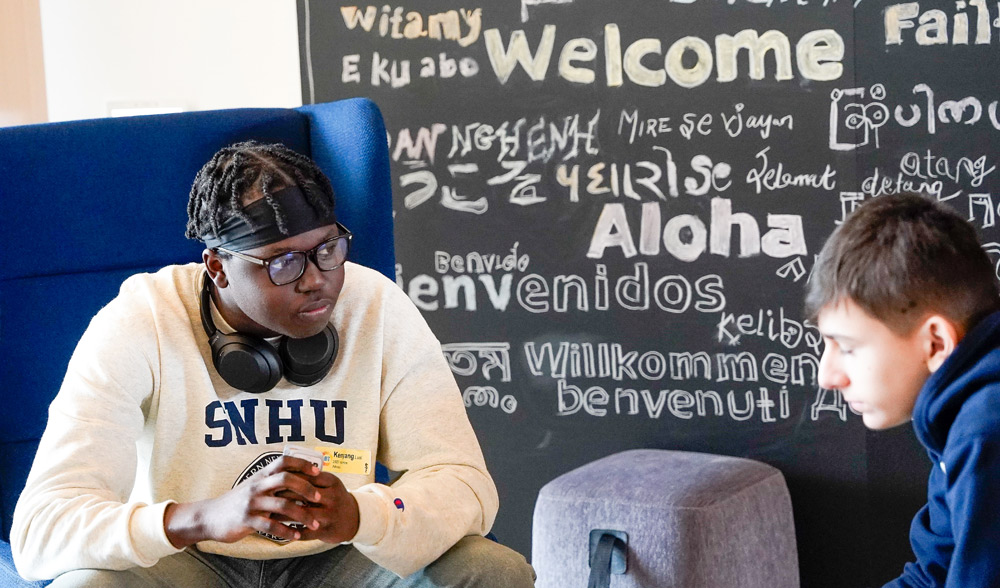
Founded in 1991, Breakthrough Manchester began as a program for the academic enrichment and support of motivated Manchester students with limited opportunities. In the beginning, the program originally served middle school students, who would participate in a 6-week summer program and Saturday programming during the school year.
Twenty-five years later, in partnership with SNHU, Breakthrough expanded its programming in 2016 to serve Manchester high school students. As part of SNHU’s community engagement office, The Chandler Center, Breakthrough Manchester College-Bound (BTM-CB) is a tuition-free program guided by its mission to give continued support in academic growth, educational enrichment, college readiness, and essential skill-building to highly motivated, under-resourced high school students while inspiring the next generation of well-rounded leaders and educators.
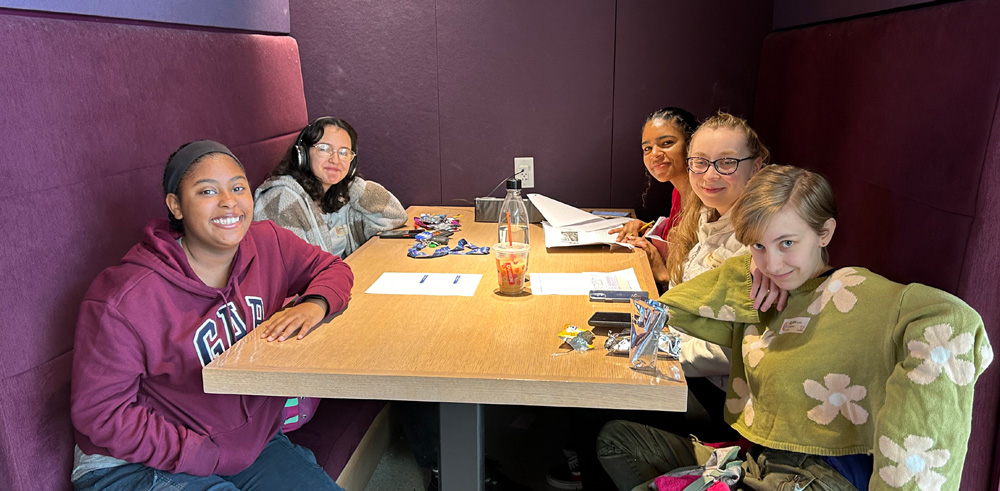
BTM-CB seeks to enrich the education of Manchester teens through dedicated advisors who are current college students at SNHU or other institutions of higher education—the majority of whom attended BTM-CB themselves.
“As a quiet, reserved kid in a new country, Breakthrough gave me lifelong friendships, the confidence to speak up, and a new passion for giving back to the community,” said Linh.
After completing the BTM-CB program, Linh is now an advisor who aspires to be a safe space for current Breakthrough students.
“I hope to inspire mentorship that extends beyond me, encouraging others to give back and become a support system for underrepresented students in Manchester,” said Linh.
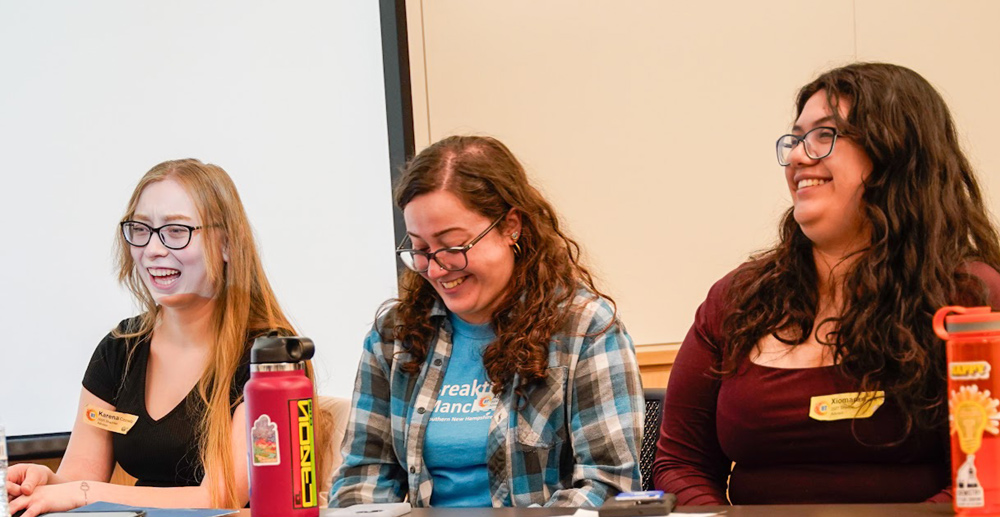
“Breakthrough has been a defining part of my life,” said Linh.
Another student at SNHU who holds Breakthrough Manchester close to their heart is graduating senior Karena Czzowicz.
Like Linh, Karena is also a first-generation college student and was enrolled with Breakthrough Manchester as a middle and high school student. Now as a senior at SNHU, Karena works as an Advisor for the high school program.
BTM-CB and peer support played a pivotal role in Karena’s college journey, guiding her through every step of the process—from starting her applications to selecting which college to attend. As a recipient of the Breakthrough Manchester Partnership Scholarship, Karena also received crucial financial support that helped make her education possible.
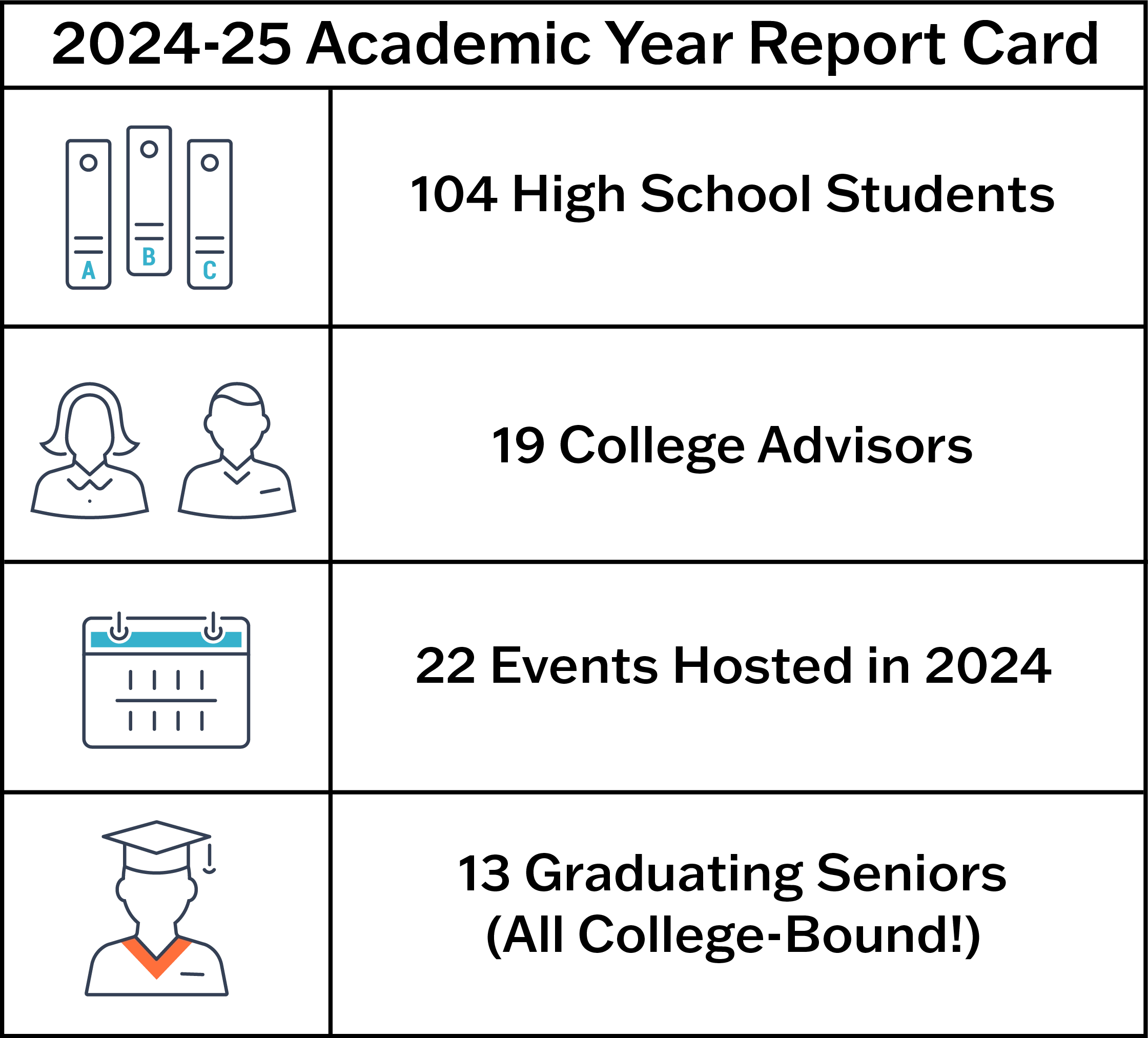
Karena and Linh are just two of the students who make BTM-CB what it is today. For the 2024-25 academic year, the program is made up of 104 high school students and 19 college student advisors. With the help of these individuals, among staff and supporters, Breakthrough Manchester at SNHU was able to host 22 events in 2024. Adding to those remarkable numbers, this year the program is celebrating 13 graduating high school seniors, all college-bound.
When reflecting on their time as a member, one of the graduating seniors said, “BTM-CB has helped me on my journey to college from sparking my interest in college to now on my way to attending college in the fall. This program has given me resources and support in this entire process from helping me with understanding schoolwork, to advice on interviews and essays, to answering questions regarding financial aid. Overall, BTM-SNHU has given me a community of like-minded individuals as well as lifelong friends and mentors.”
Many other members had positive experiences to share. The words that stand out the most from these students were skills, resources, community, support, and friendship—just some of the ways to describe the lifelong impact that BTM-CB has on the youth it serves.
With the help of Southern New Hampshire University, Breakthrough Manchester will continue empowering students to break barriers and ensure they receive the college experience they deserve, regardless of their background.

Shaping the Future
Students enrolled in the biofabrication course were taught about research and development, biotech sales, quality control, cell biology, and regulatory affairs. In addition to learning the basics of cell culture through hands-on experiments, students also chose a disease that could benefit from the technology in order to design a plan to fix it.
Student William Brown stated, “The most interesting thing about the class is definitely the creation of the organ itself, because it’s very hard to find certain donors, especially for certain organs in the body, and if we’re able to create those organs artificially and give those to another person, it would be able to save a lot of lives.”
Community Partnerships: SNHU and Advanced Regenerative Manufacturing Institute (ARMI)
Chair of the Department of Biological Sciences
Expanding Our Future
“It will be added to the list of major electives for students in biology and is expected to quickly generate new ideas and research opportunities for students in the future,” said Dr. Katharine York.
To support this growth in health sciences, the university is investing in new lab space that will be unveiled in Fall 2025.
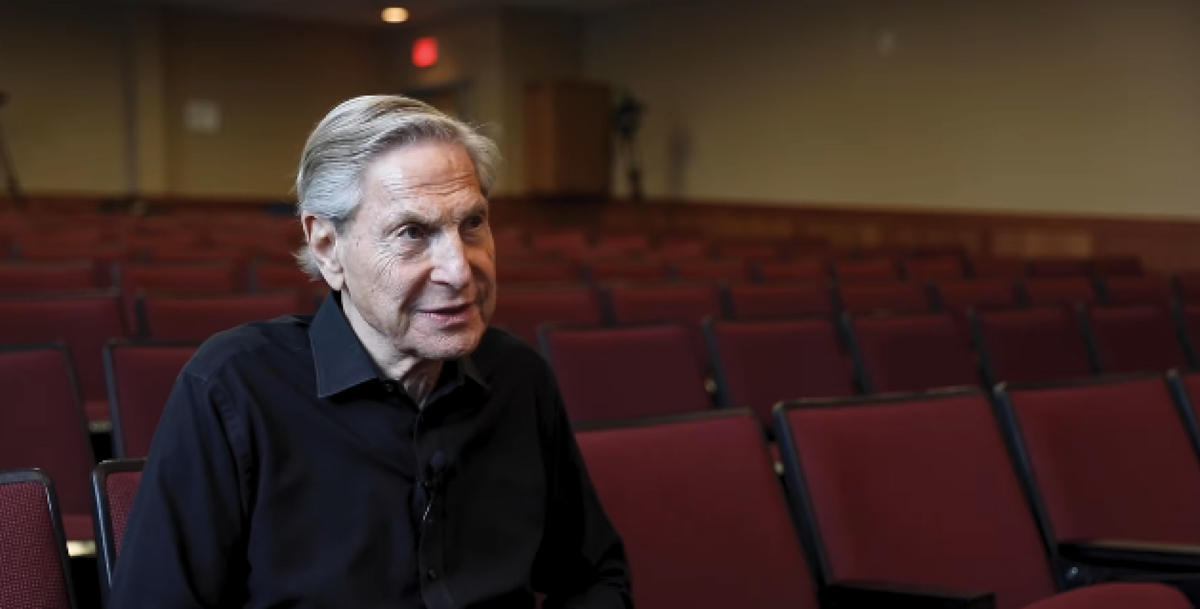
Howard Brodsky Joins School of Business as Executive in Residence
Brodsky, who co-founded Manchester, NH-based CCA Global Partners nearly 40 years ago and grew it to become the largest purchasing cooperative in the United States, was inducted into the Cooperative Hall of Fame in 2009 and was the first American to be awarded the Rochdale Award, the “Nobel Prize of Cooperative Business.” His influence is further acknowledged through awards such as the World Affairs Council Global Leadership Award and induction into the Entrepreneur Hall of Fame.
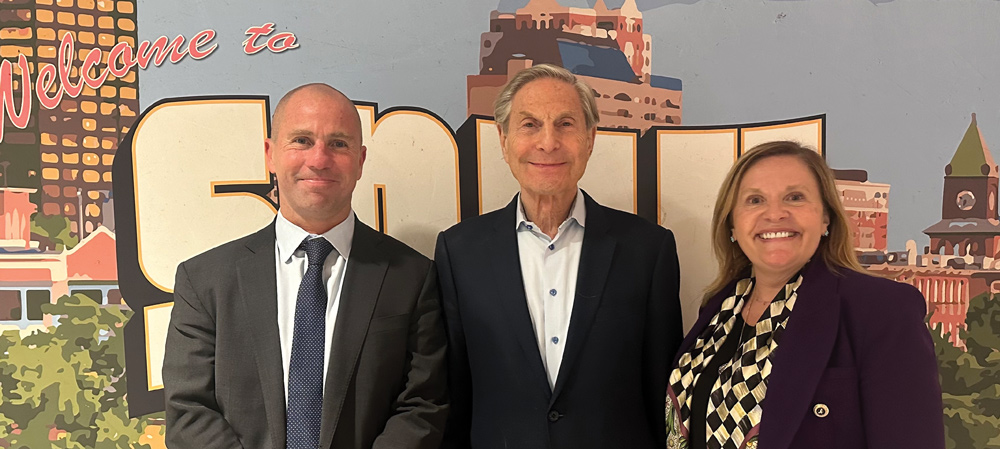
“I’ve had the honor to serve alongside Howard during my time on the board, as provost, and now in my role as president,” said SNHU President Lisa Marsh Ryerson. “Having witnessed his valuable insights and unwavering commitment to SNHU over the years, I know the School of Business and our students will benefit greatly from his vast experience and guidance.”
In one of his first interactions with campus students, Brodsky discussed cooperative business models and “capitalism with a conscience” in a packed lecture in Mara Hall. He described the many benefits that can be derived from putting people before profits and by engaging young people who will be the future leaders and business owners of tomorrow.
Dean of SNHU’s School of Business Diego Nocetti is happy to see Brodsky fill this role. “I am extremely excited about the opportunity to partner with Howard Brodsky,” he said. “As a world-renowned and decorated business leader, Howard exemplifies our core belief that business should act as a force for good. His joining our team as executive in residence underscores our commitment to preparing students to make a positive impact in the world. I anticipate that Howard will have a significant impact through the development of new experiential learning opportunities and courses focused on sustainable business practices and cooperative models, enriching our curriculum and empowering our students to lead in these crucial areas.”
Crossing the Finish Line
Meet some of the newest SNHU alumni, whose unique journeys are united by their persistence and resilience in the face of challenges.
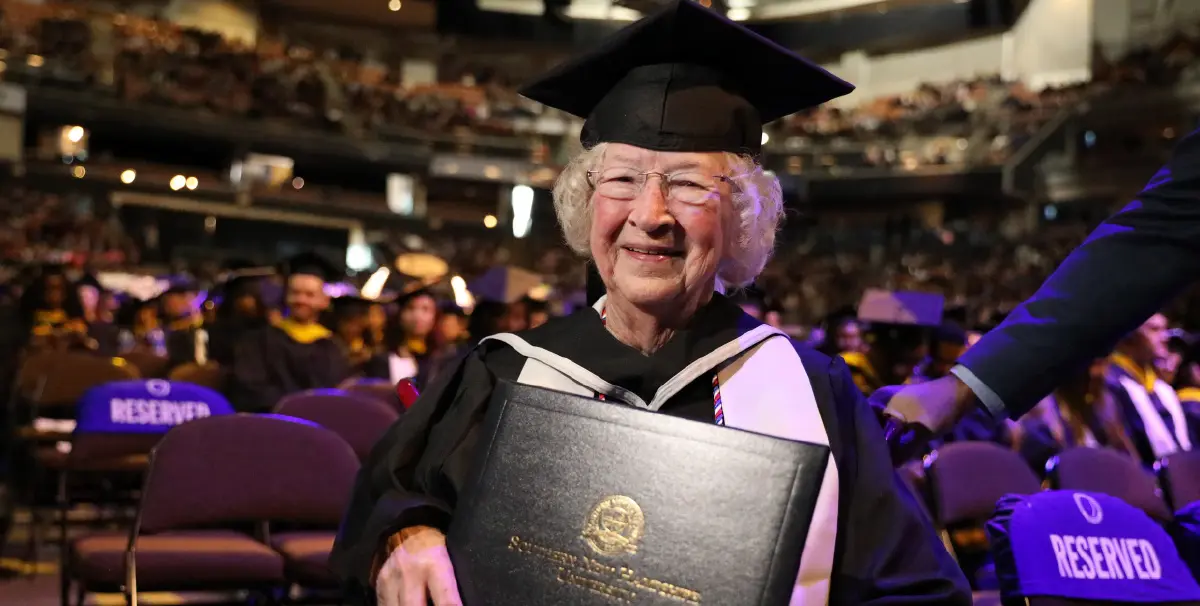
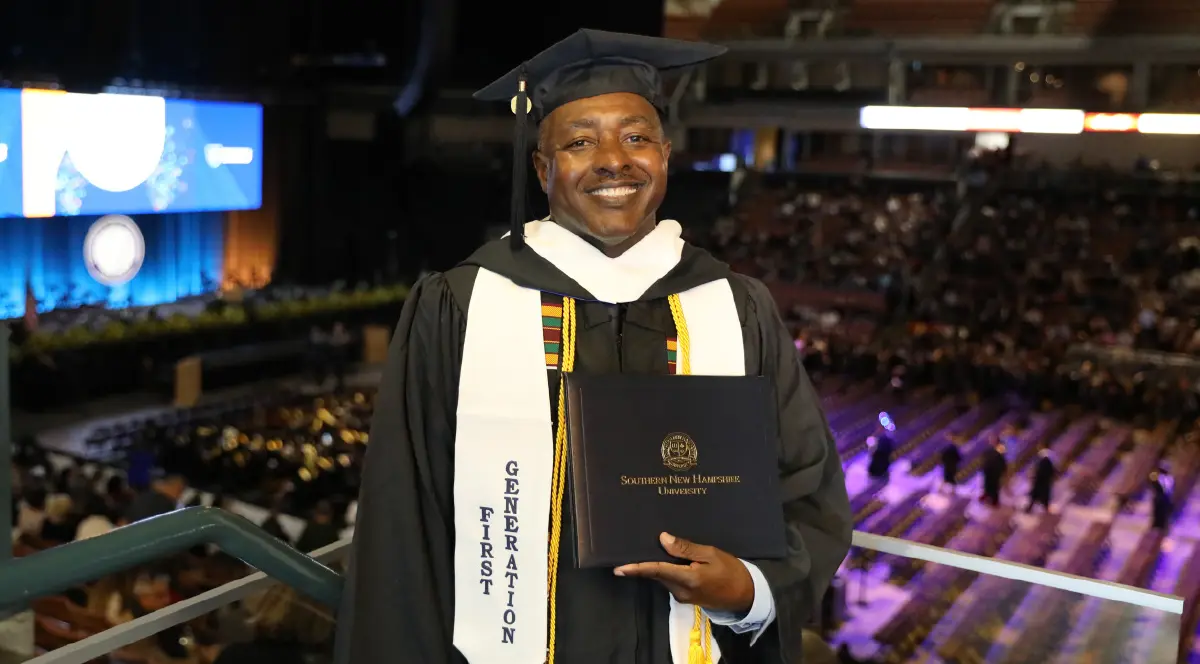
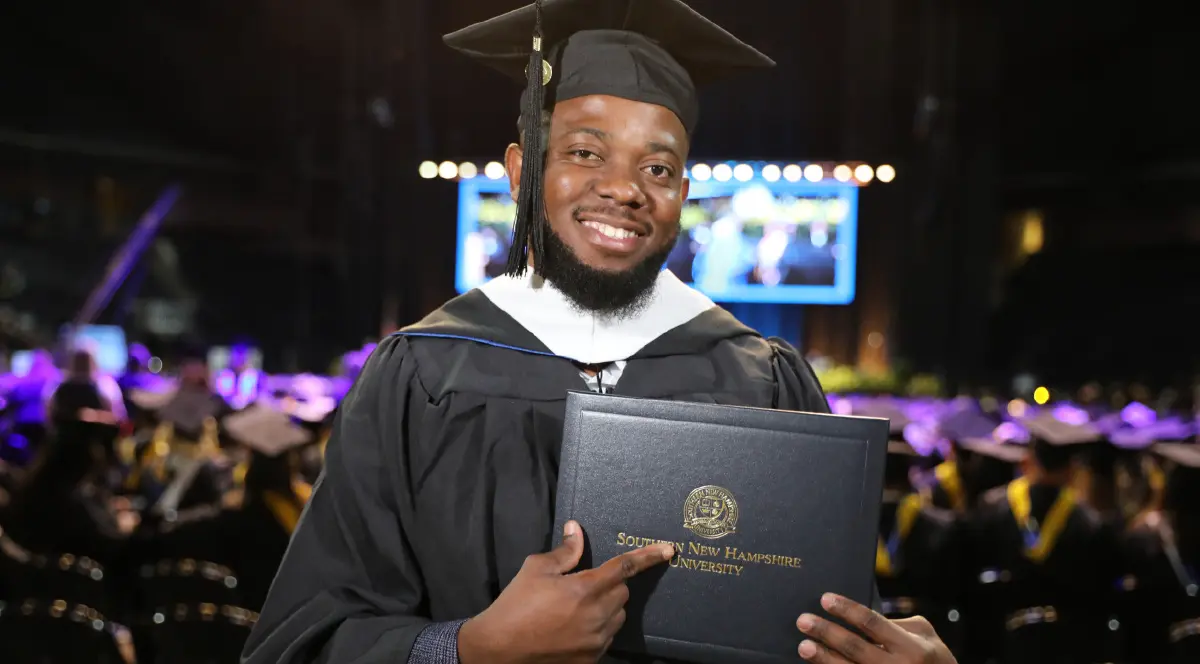
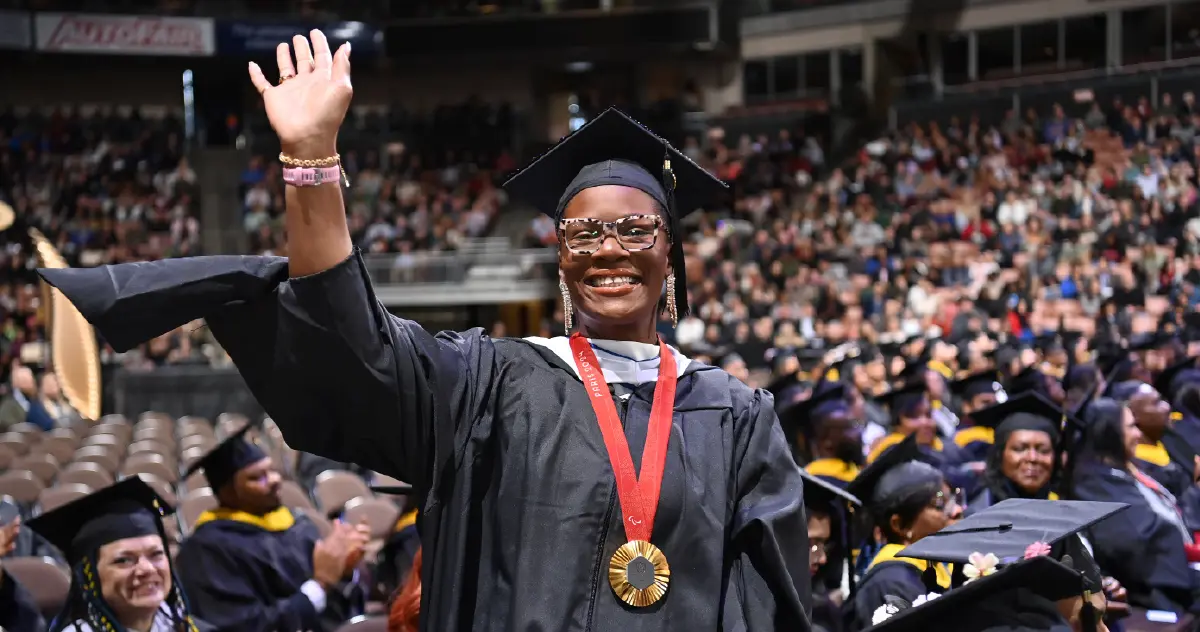
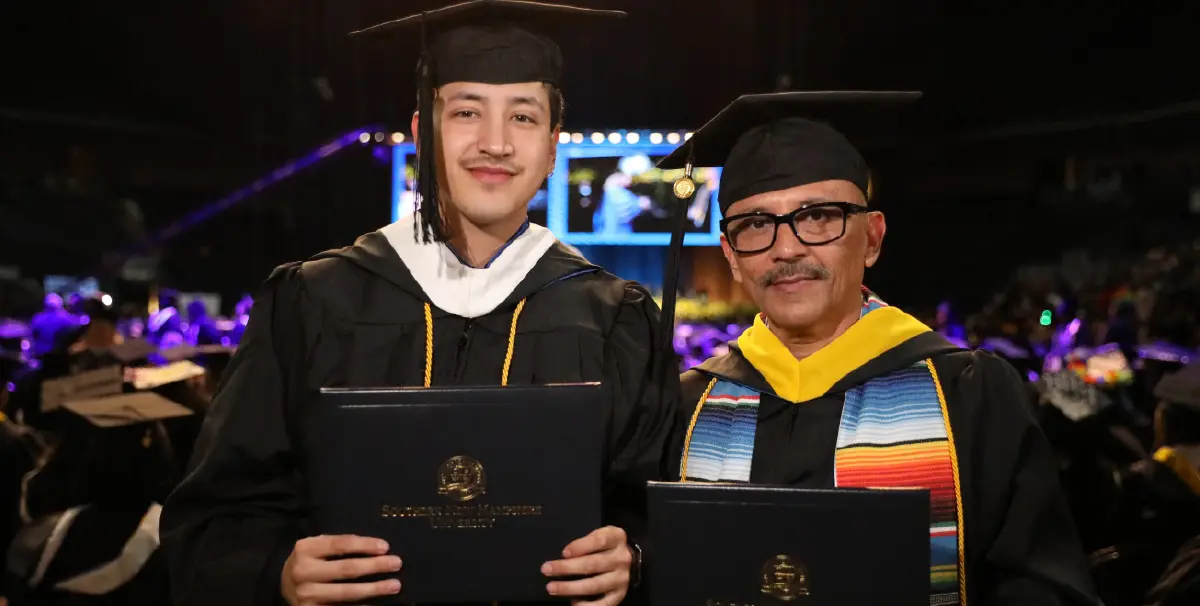
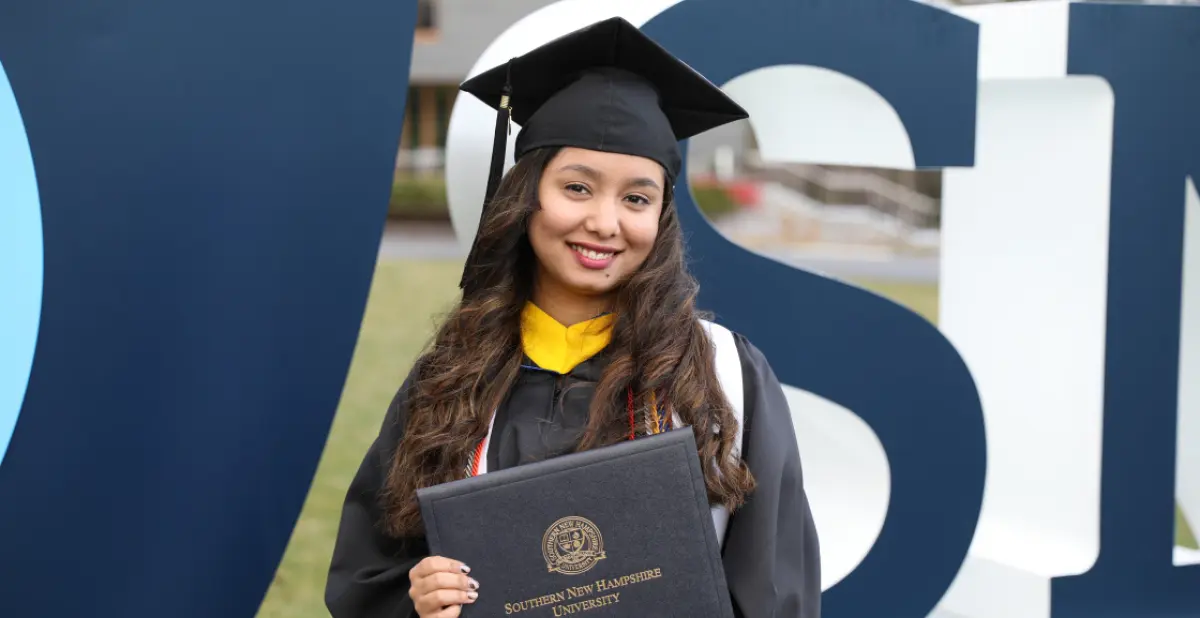
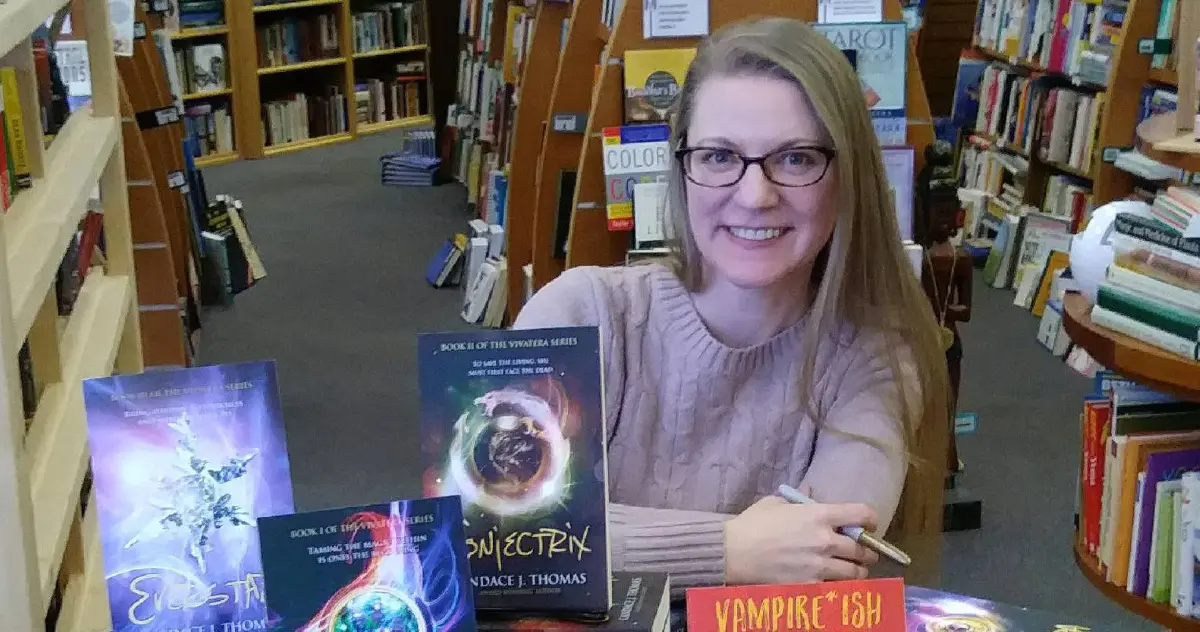
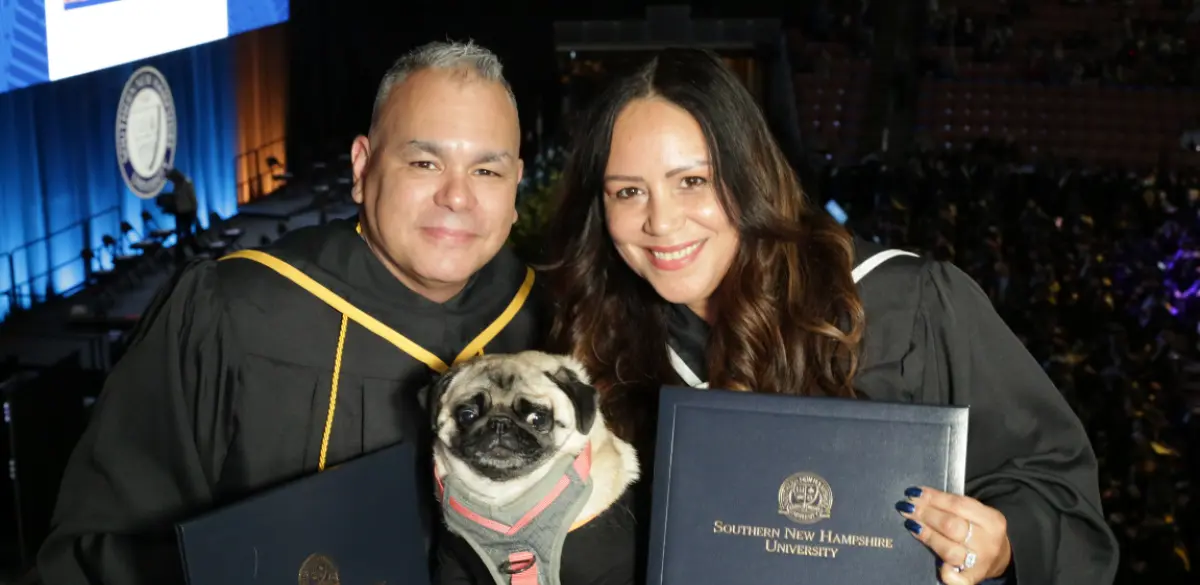
SNHU Gathers State Leaders to Address Basic Needs for Today’s Learners
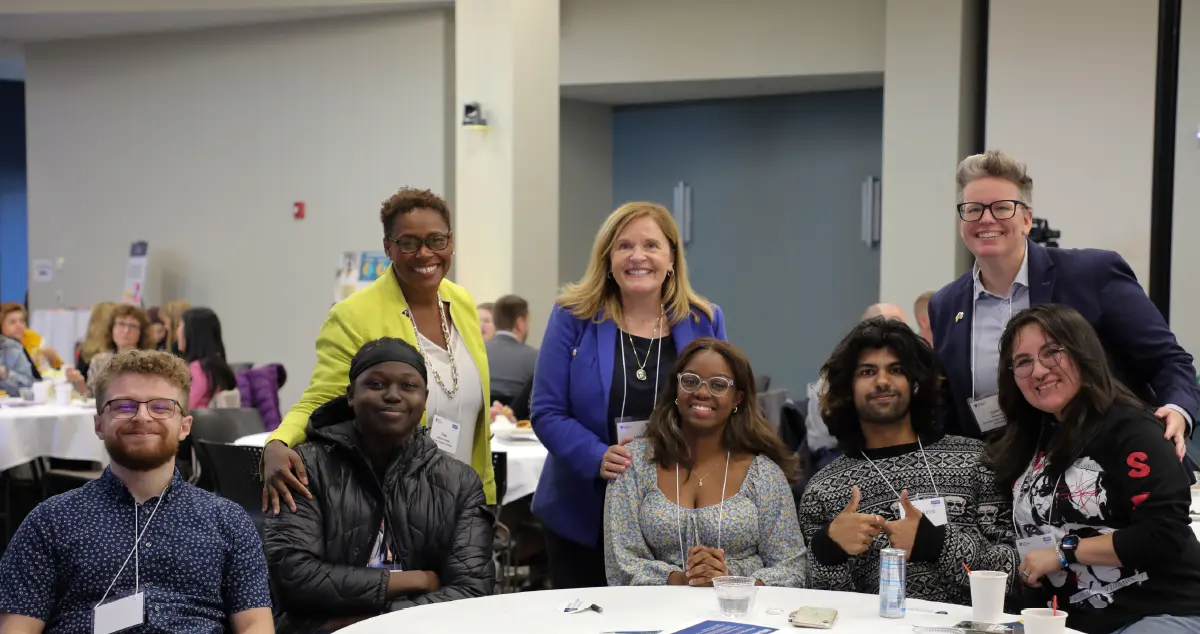
During the COVID-19 pandemic, the federal government created the Higher Education Emergency Relief Fund (HEERF), providing $70 billion in grants to support students in need. A 2023 report from the Center for Higher Education Policy and Practice (CHEPP) found that SNHU learners receiving HEERF grants were up to 15% more likely to stay enrolled the following semester, highlighting the impact of basic needs access on student success.
Advocating for More Basic Needs Support
In her opening remarks, SNHU President Lisa Marsh Ryerson emphasized the collective impact of unmet needs. “When anyone in our community lacks food or shelter, we all suffer. This is a shared responsibility, and it’s time for federal policymakers to support robust solutions to combat basic needs insecurity.”
The event’s centerpiece was a panel of students who shared personal stories that brought the issue to life. Moderated by Dr. Lynn Zlotkowski, SNHU’s senior director of student retention and success, the panel included SNHU students from both campus and online programs, as well as a student from Saint Anselm College. Their stories highlighted difficult choices they face—whether to pay for transportation to class or a week’s worth of groceries, or whether to prioritize tuition over rent.
Stories of Resilience
“I don’t want to drop out,” he said. “If I graduate, I’ll be in a position to support my parents and siblings. But right now, it’s hard to know if there will be food in the fridge or if I can afford transportation.”
Kenyang’s story, like those of so many students, underscores how a single setback can cascade into a crisis. Yet, his determination and resilience inspire hope. With support from SNHU, including a scholarship that allowed him to move back on campus, Kenyang is now on track to finish his degree.
Supporting Students’ Basic Needs
“These resources are critical, but we know they’re not enough,” said President Ryerson. “The needs of today’s learners are growing, and we must do more to meet them.”
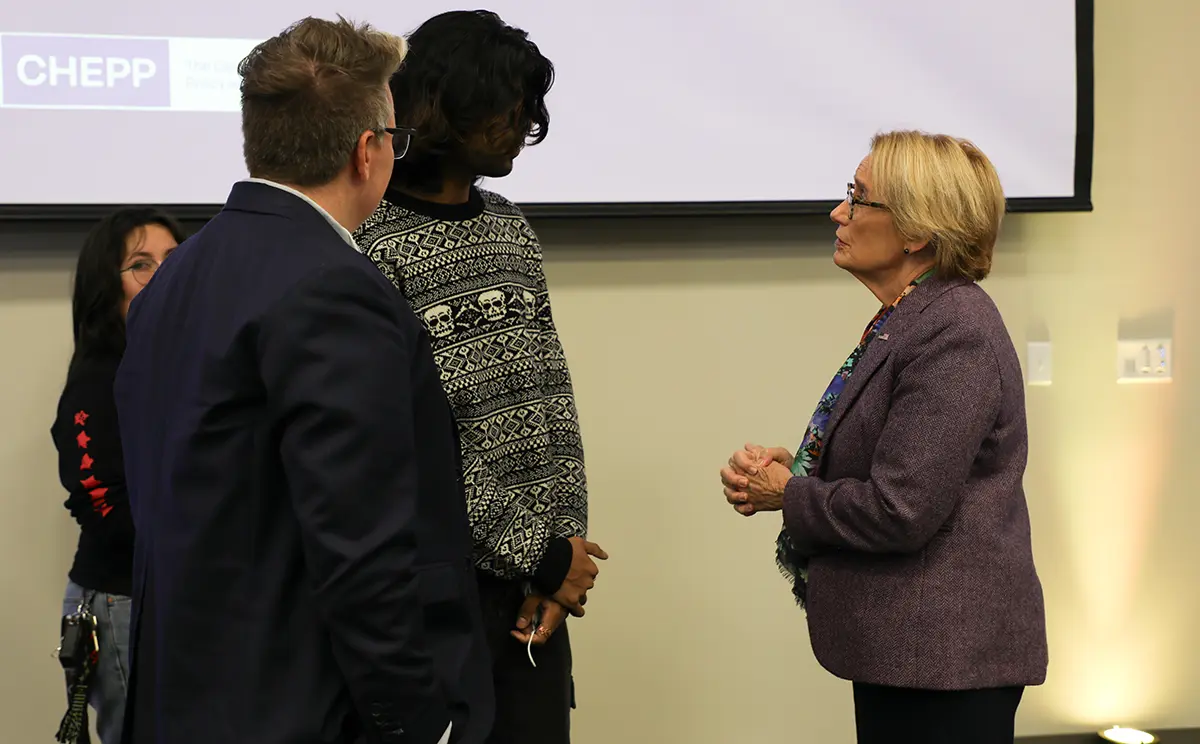
Advocating for Policy Change
At the event on campus, U.S. Senator Maggie Hassan stressed the importance of systemic change. “The challenges of college should come with exams, papers, and maybe a part-time job to pay for discretionary expenses—not for the necessities of life,” she said. Senator Jeanne Shaheen also expressed her support through a letter read at the event, highlighting the need for collective action.
SNHU’s advocacy extends beyond campus boundaries. By collaborating with institutions like the University of New Hampshire and Manchester Community College, as well as national organizations like SchoolHouse Connection, SNHU and CHEPP are building a coalition to address student homelessness and food insecurity.
Looking Ahead
Through partnerships, advocacy, and community-driven solutions, SNHU is leading the charge to make basic needs insecurity a challenge of the past. Together, we can create a future where every student has the resources to reach their full potential.
TODAY’S LEARNERS…
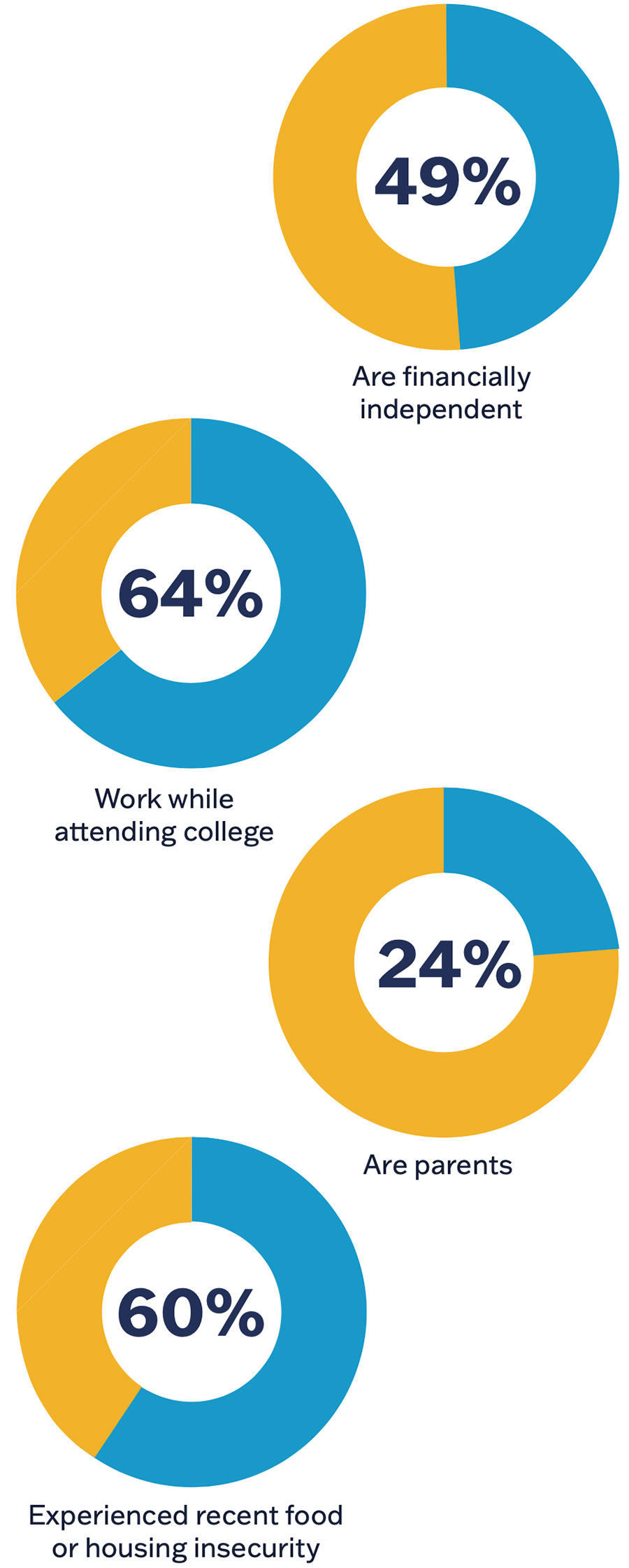
Spotlight on Success

Sampath Deva ’95G has created a lasting impact at SNHU through his commitment as a loyal volunteer and donor. Whether he’s lending a helping hand or sharing his story to inspire others, staff and students know they can always count on Sampath to go above and beyond. Over the years, Sampath has served as a passionate advocate for SNHU fundraising initiatives, especially student scholarships, which enabled him to achieve his academic dreams and build the foundation for his career. Coming to New Hampshire College as an international student from India, Sampath has enthusiastically helped current international students as they navigate their journey from learner to professional. His dedication to the university community for the last 30 years has made a difference in the lives of many SNHU students and will continue for years to come.

Connor Chute ’22 stands out as an esteemed leader, both professionally and within the SNHU community. During his time as a student, Connor was active in the Professional Sales Program where his mentors and coaches gave him the confidence needed to enter a career in sales. Since graduating, Connor has been an integral part of the program by volunteering his time coaching current students, and occasionally judging a few of the competitions he once competed in. Connor’s impact as a student and now as an alum shows what being an emerging leader is all about—sharing his knowledge and experiences to prepare the next generation.

Dr. Amanda Dolan ’13MEd ’20EdD demonstrates dedication and commitment, leaving a lasting impact on SNHU, its students, and her community. With more than 15 years in education, she has a strong focus on the evolution of framework, which consists of practices and standards that position all educators to better serve students and their emerging needs. Amanda is actively involved in her community, dedicating her time and expertise serving as Chair of SNHU GC Women’s Empowerment Roundtable Scholarship Committee and as an active member of New England Education Research Organization, American Education Research Association, New England Educational Assessment Network, and Educators Explore. At SNHU, Amanda’s service shines beyond the classroom as an adjunct professor; she’s also a lead instructional designer and doctoral scholar practitioner, where she’s involved in advising and instructing campus-based cohort models. Amanda’s leadership can be seen from across the university and beyond as she continues to be a beacon of light to her students, our institution, and the field of education.
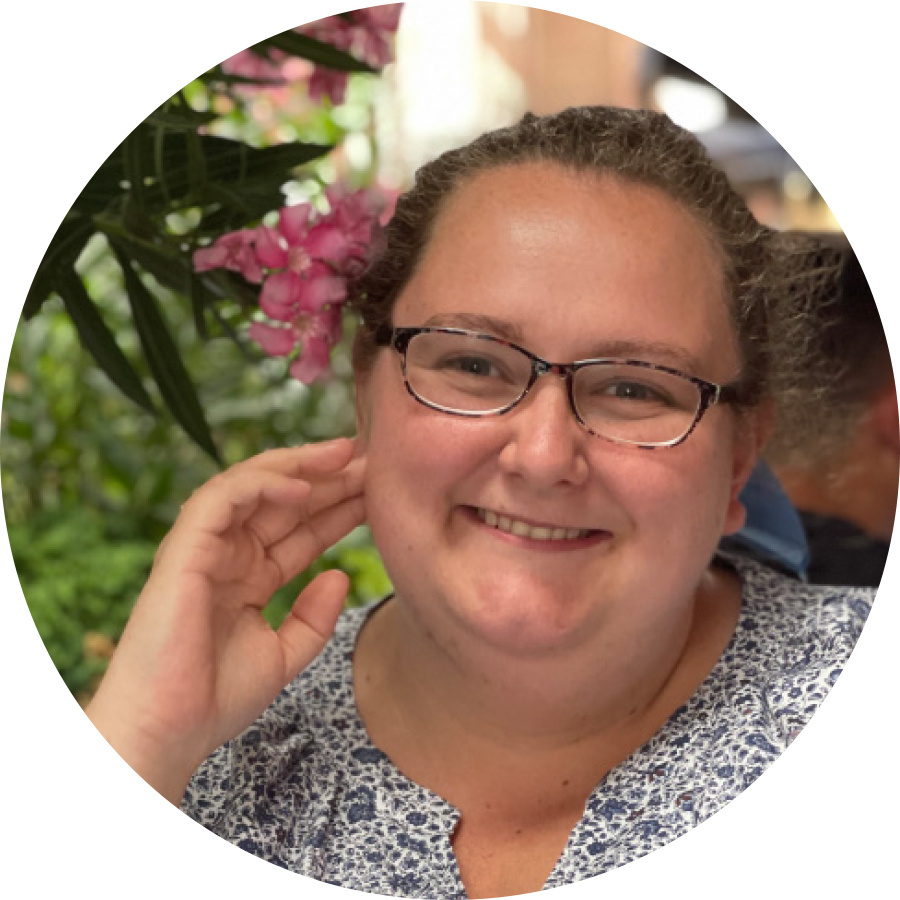
Becca Harris ’13 is an inspiring individual who has changed the lives of so many through her passion for service. While at SNHU, Becca fell in love with all things service, starting a work-study job in The Chandler Center and service-learning classes. Throughout her undergraduate experience, Becca held every student worker role possible, including service-learning coordinator, volunteer project coordinator, and Alternative Break leader. Now as an alum, Becca has turned her passion into a full-time job. Over the past 11 years, Becca has worked at nonprofit organizations with areas of focus ranging from grief, Down syndrome, and substance abuse disorder. When she isn’t working, she remains an active volunteer in her community, and she became the youngest woman to ever become president of her Rotary Club. The SNHU community has experienced her dedication to service firsthand through her involvement with Global Days of Service, at The Chandler Center, and as a classroom speaker. Becca’s generosity and investment in her community is nothing short of inspiring.
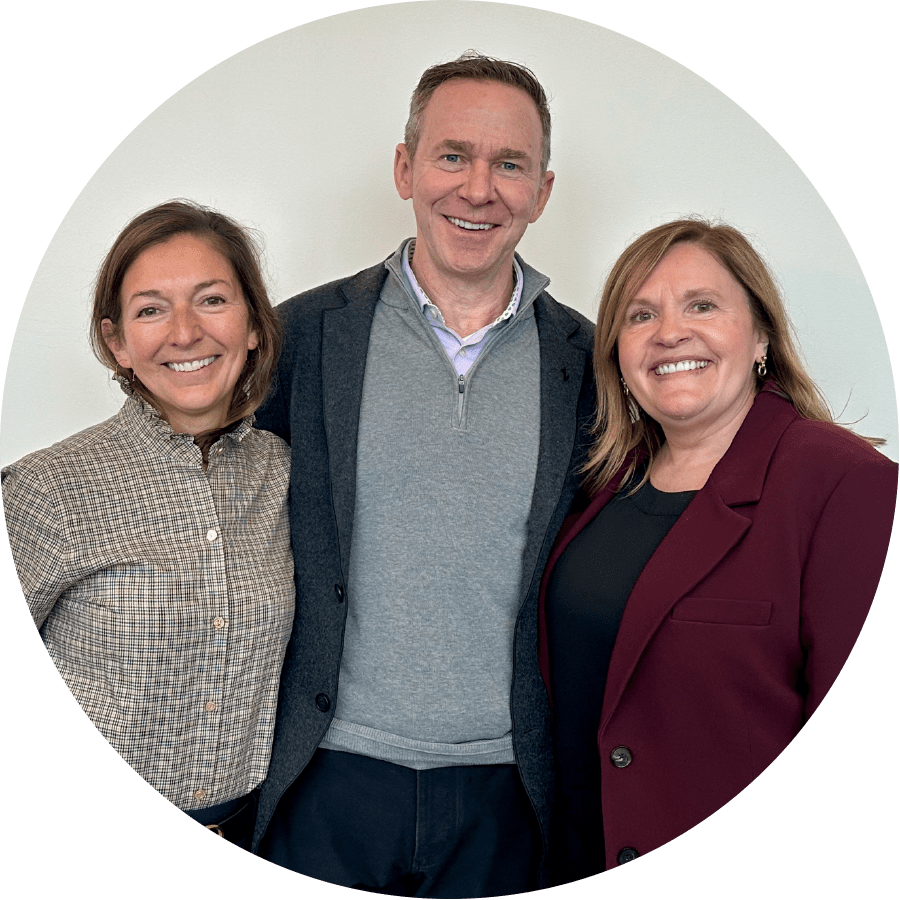
SNHU Alumnus Joins Board of Trustees
Generous Community By the Numbers
The Chandler Center
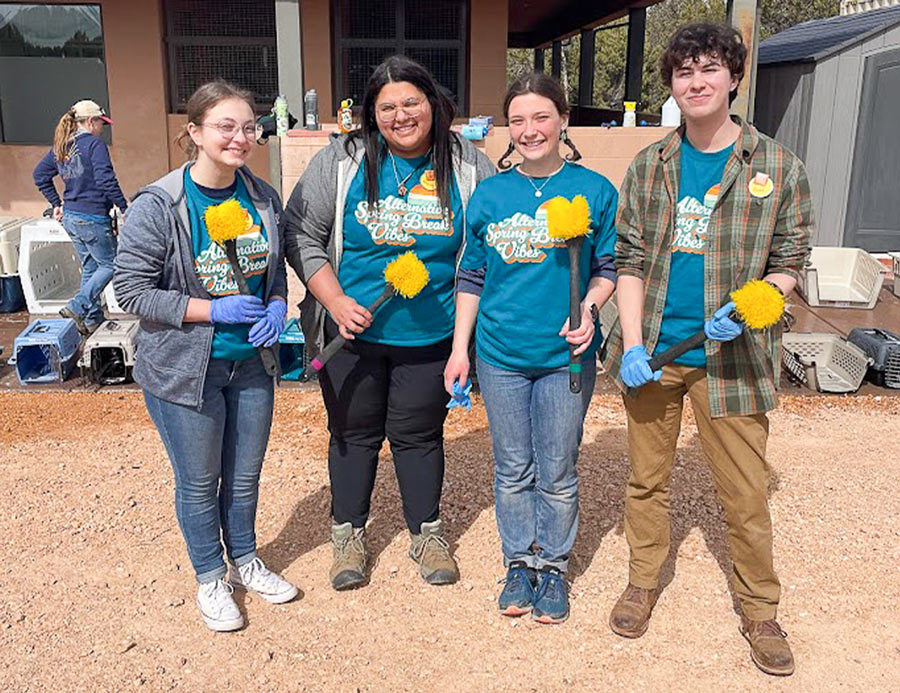
Community Impact
Center for New Americans
SNHU Employee
Volunteer Time Off (VTO) Usage
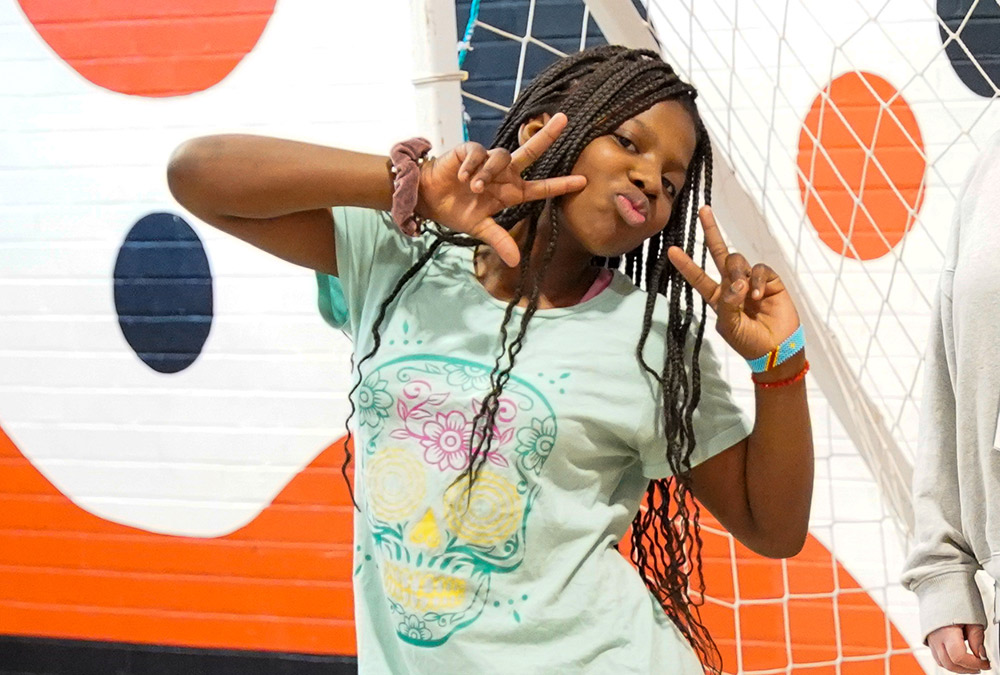
Your Impact at SNHU
July 1, 2023 – June 30, 2024
Giving
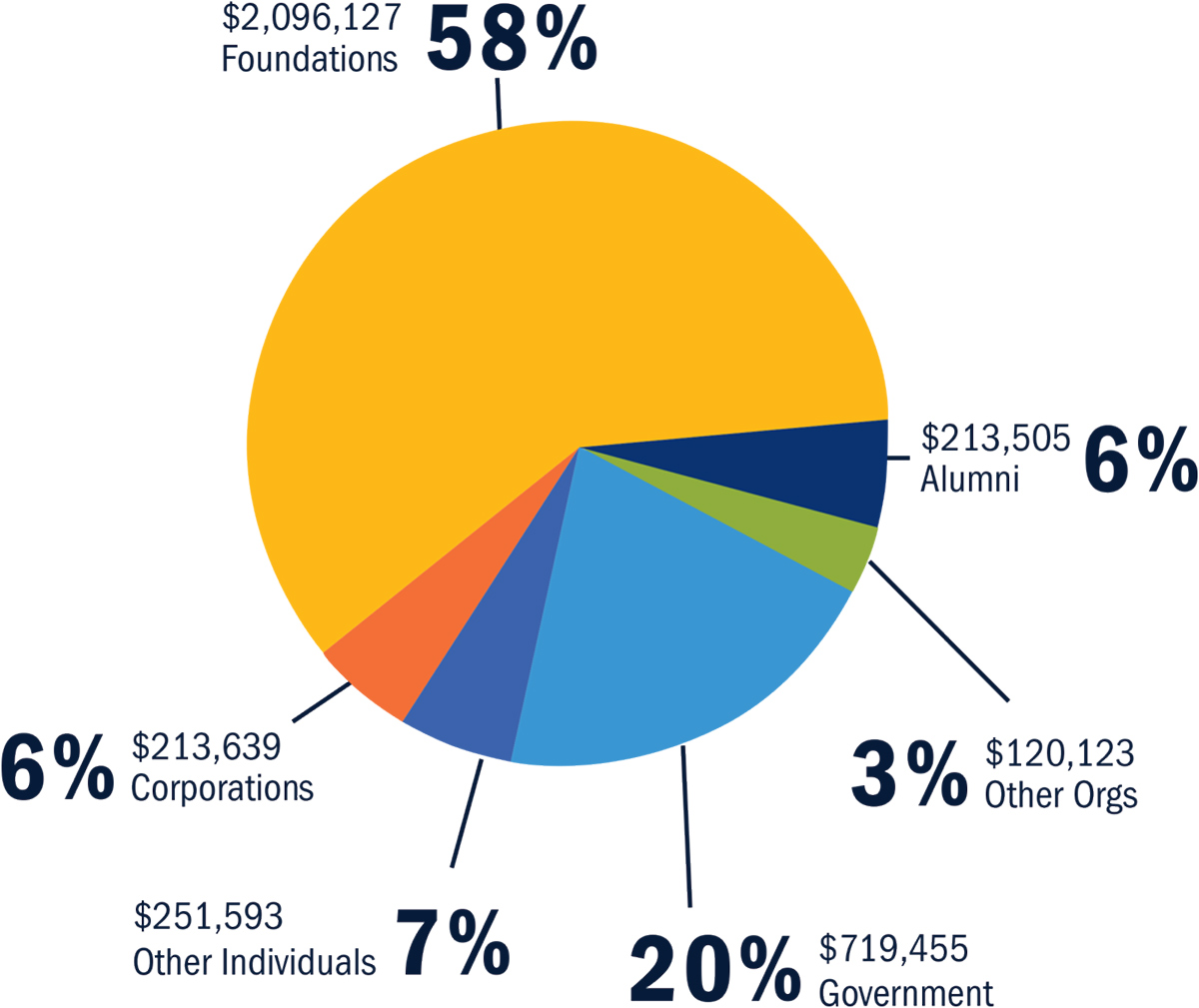
Volunteer Activity
Leadership Role
Career Coaching & Mentoring
Advocate/Supporter
Event Support
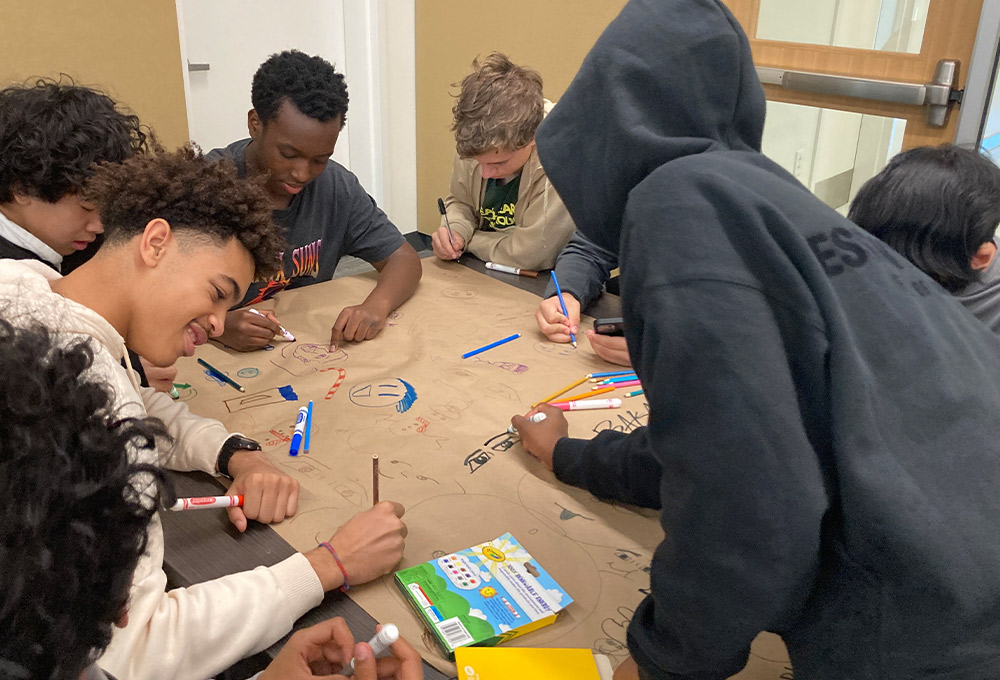
Breakthrough Manchester students helping with coloring.

The Gifting Tree 2024
8 schools received gifts
78 high school students decorated wrapping paper
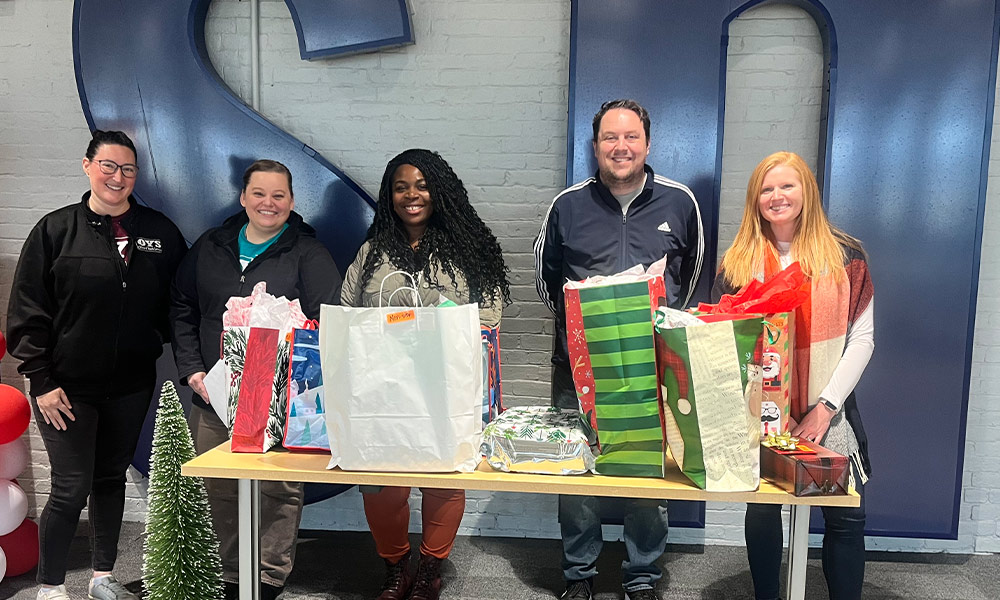
City of Manchester, NH, Office of Youth Services (OYS) picking up gifts for their clients.
A GENEROUS COMMUNITY IN PHOTOS

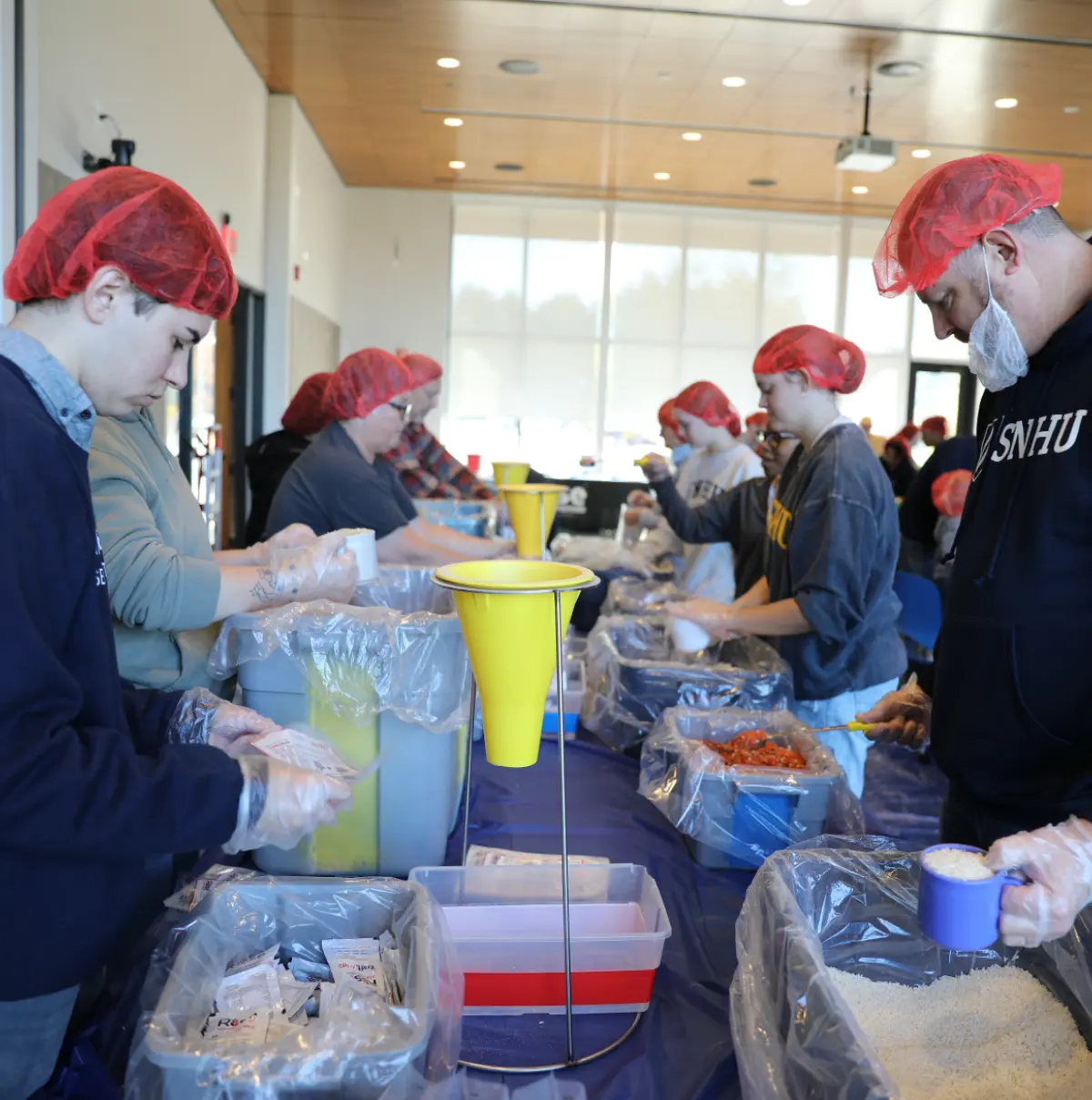
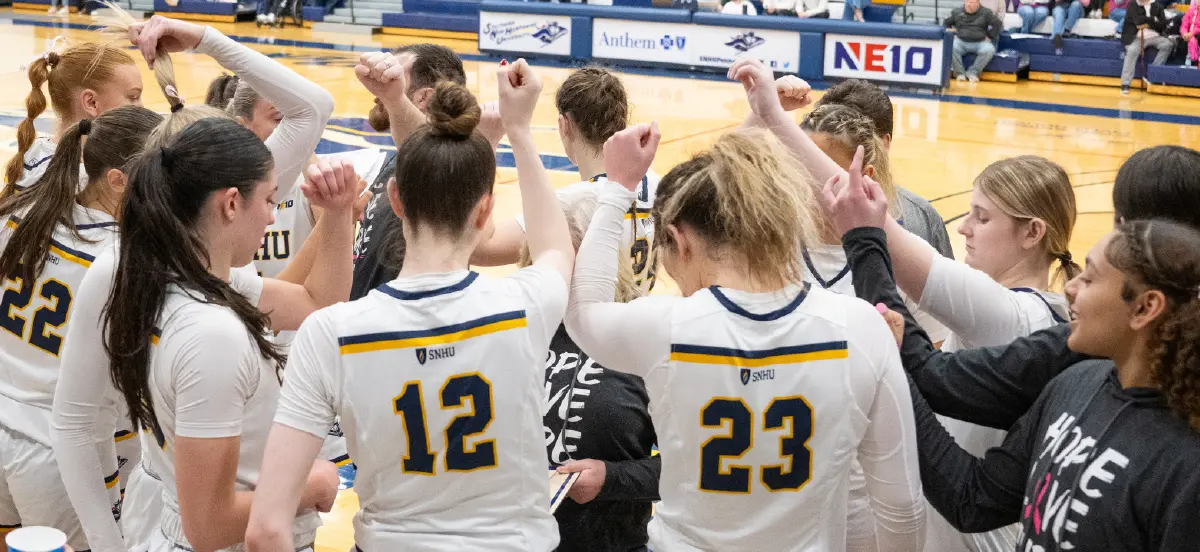
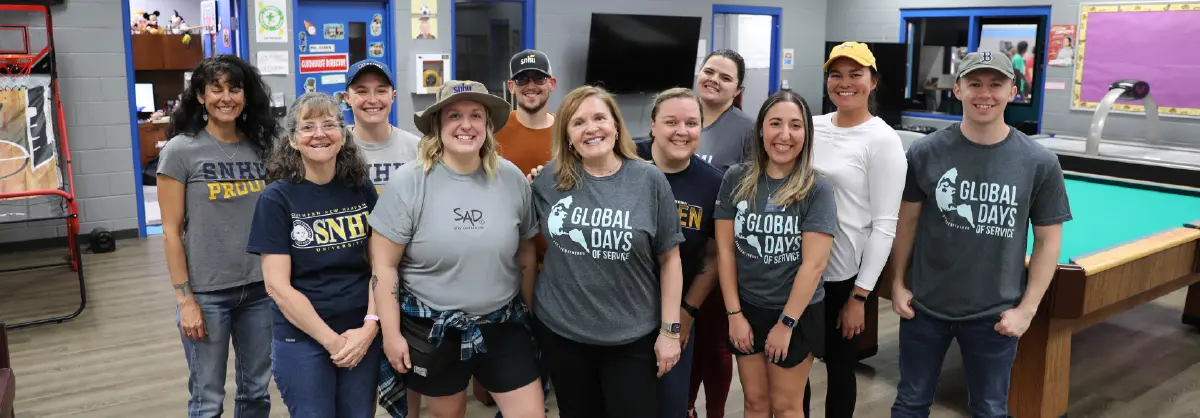
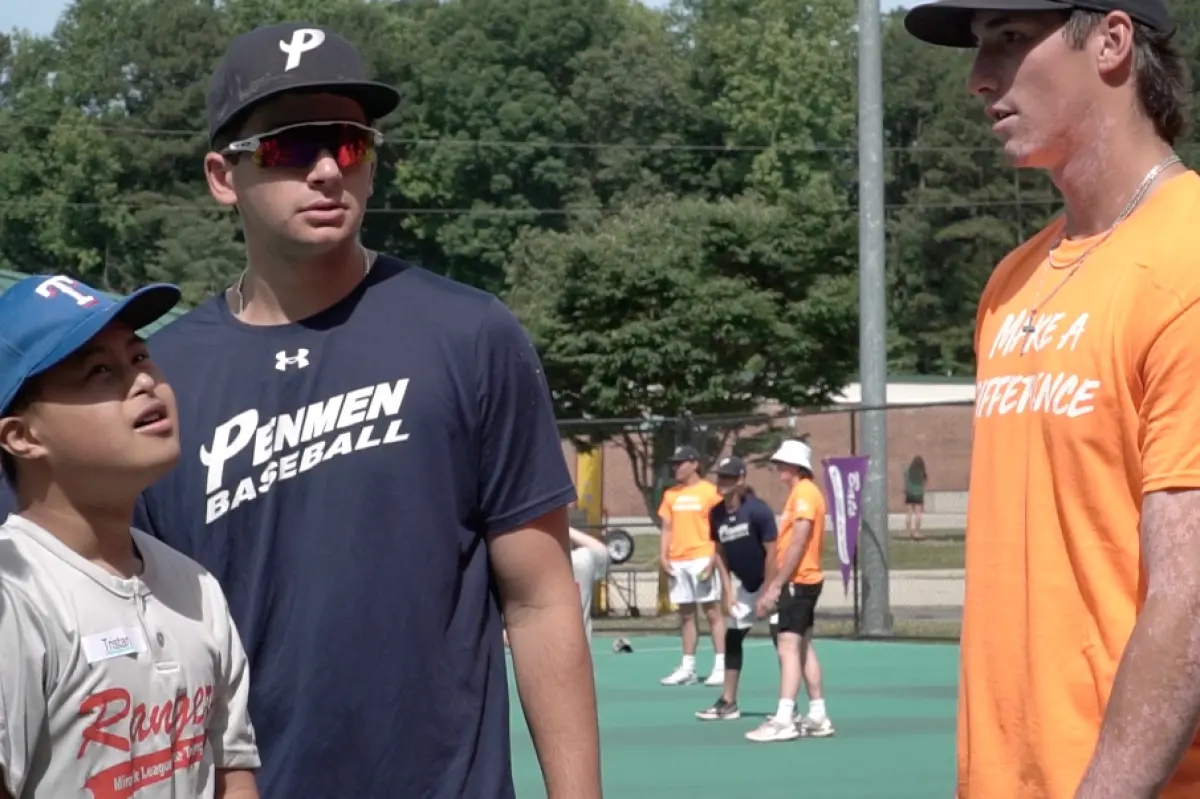
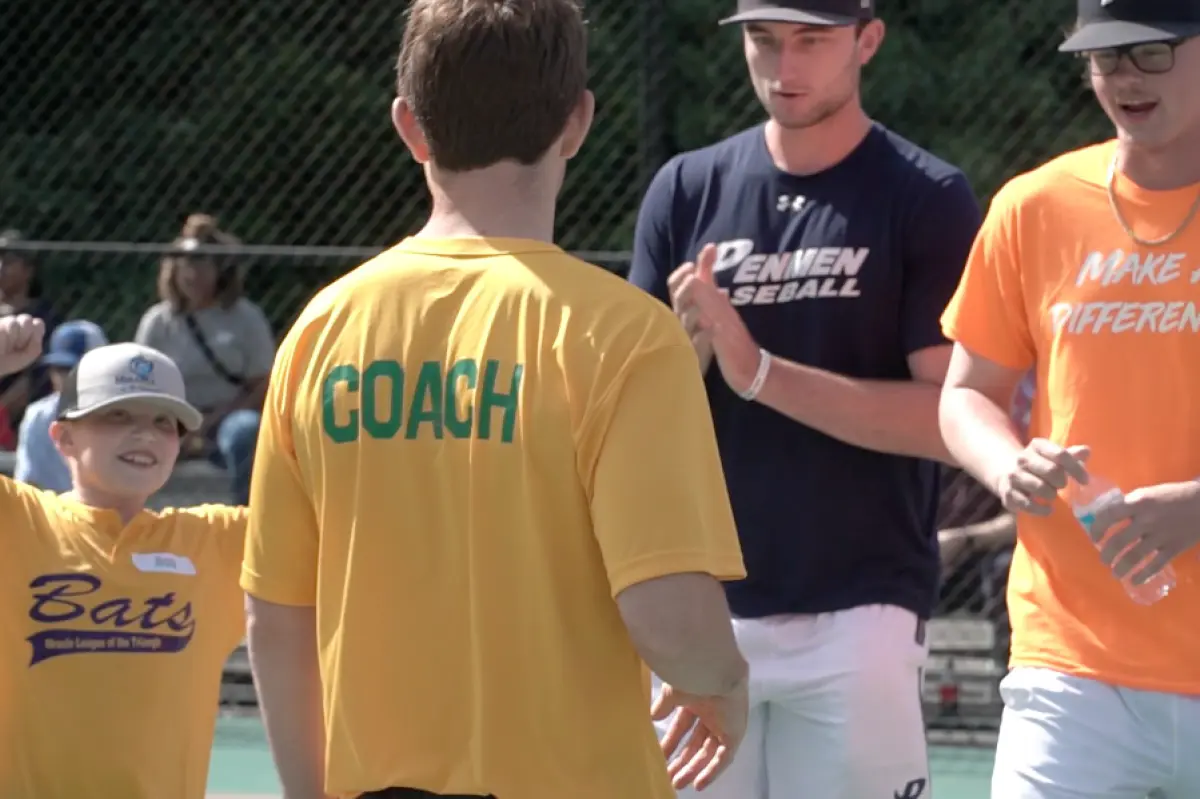
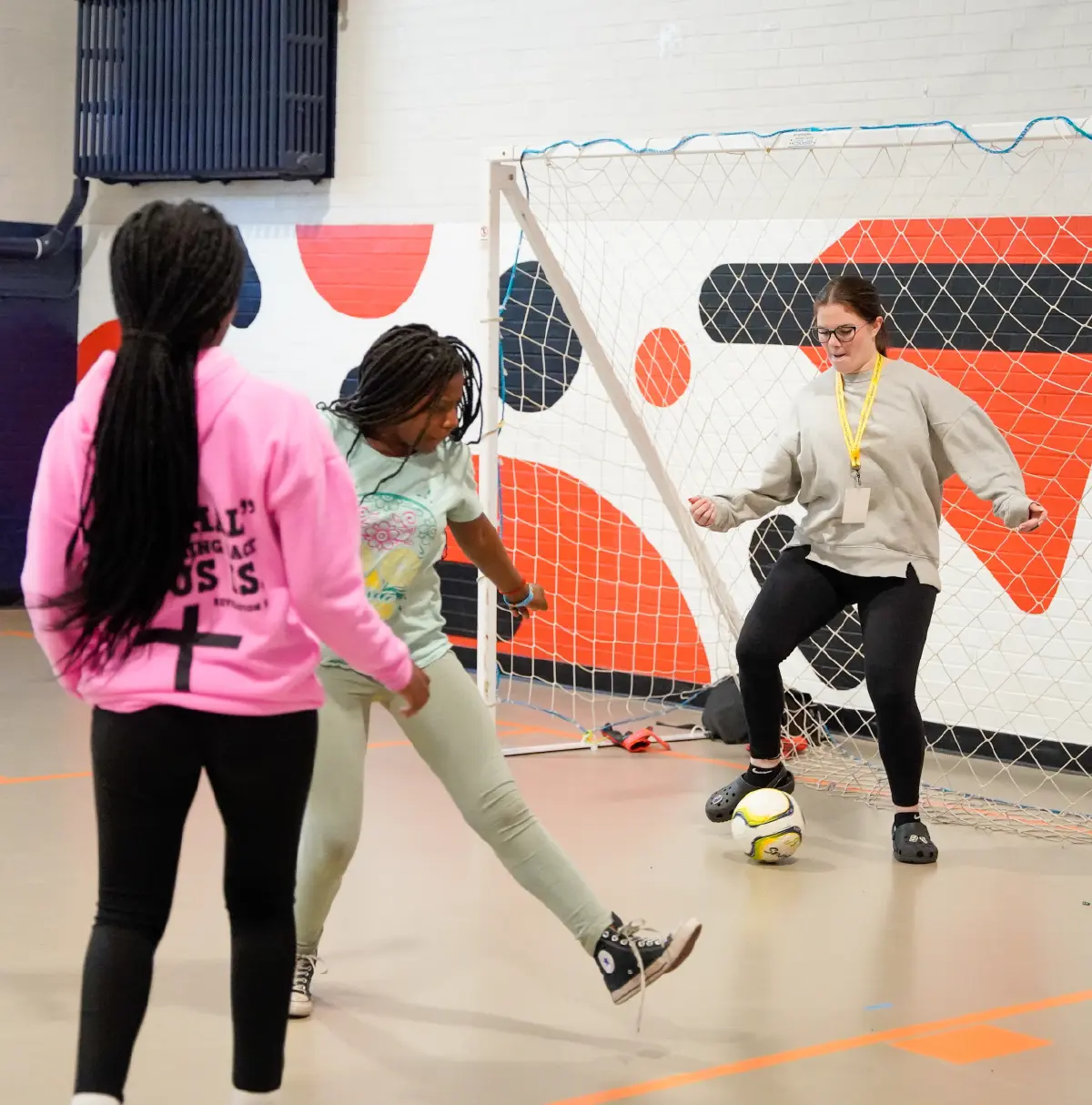
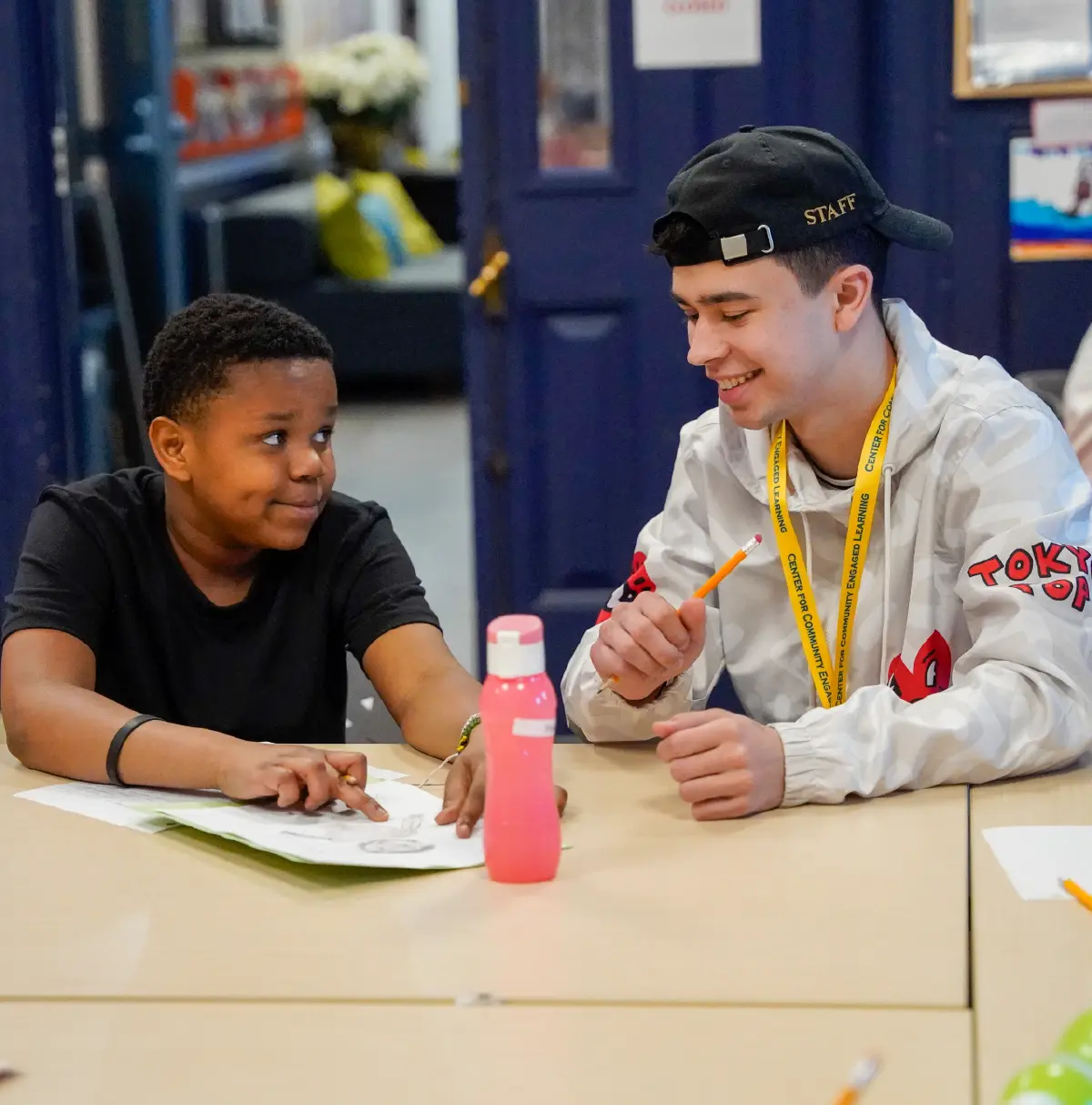
Celebrating the Life and Legacy of
Edward M. Shapiro
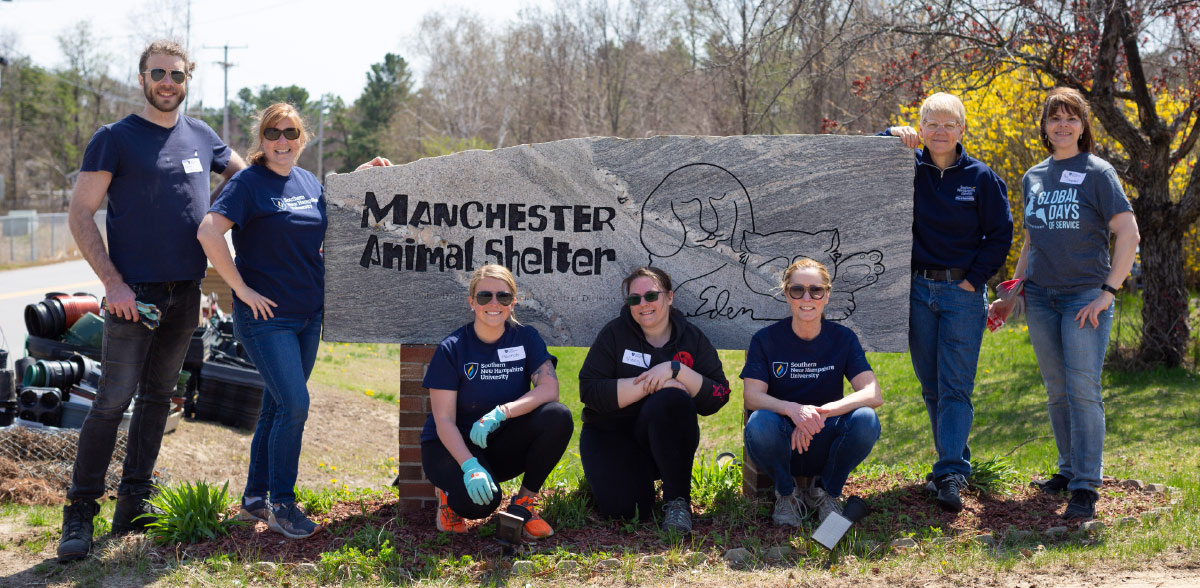
SERVE WITH SNHU IN MARCH AND APRIL
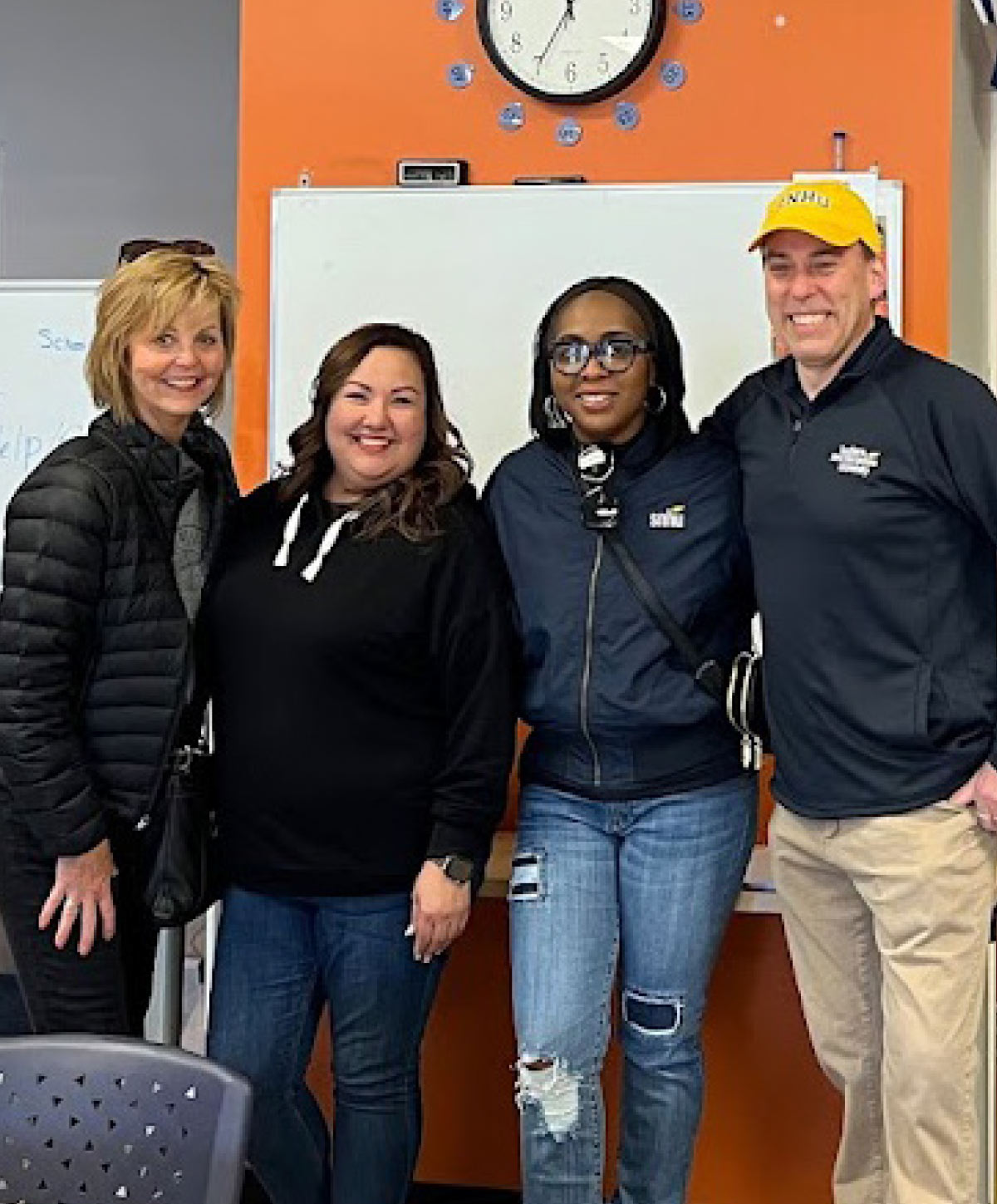
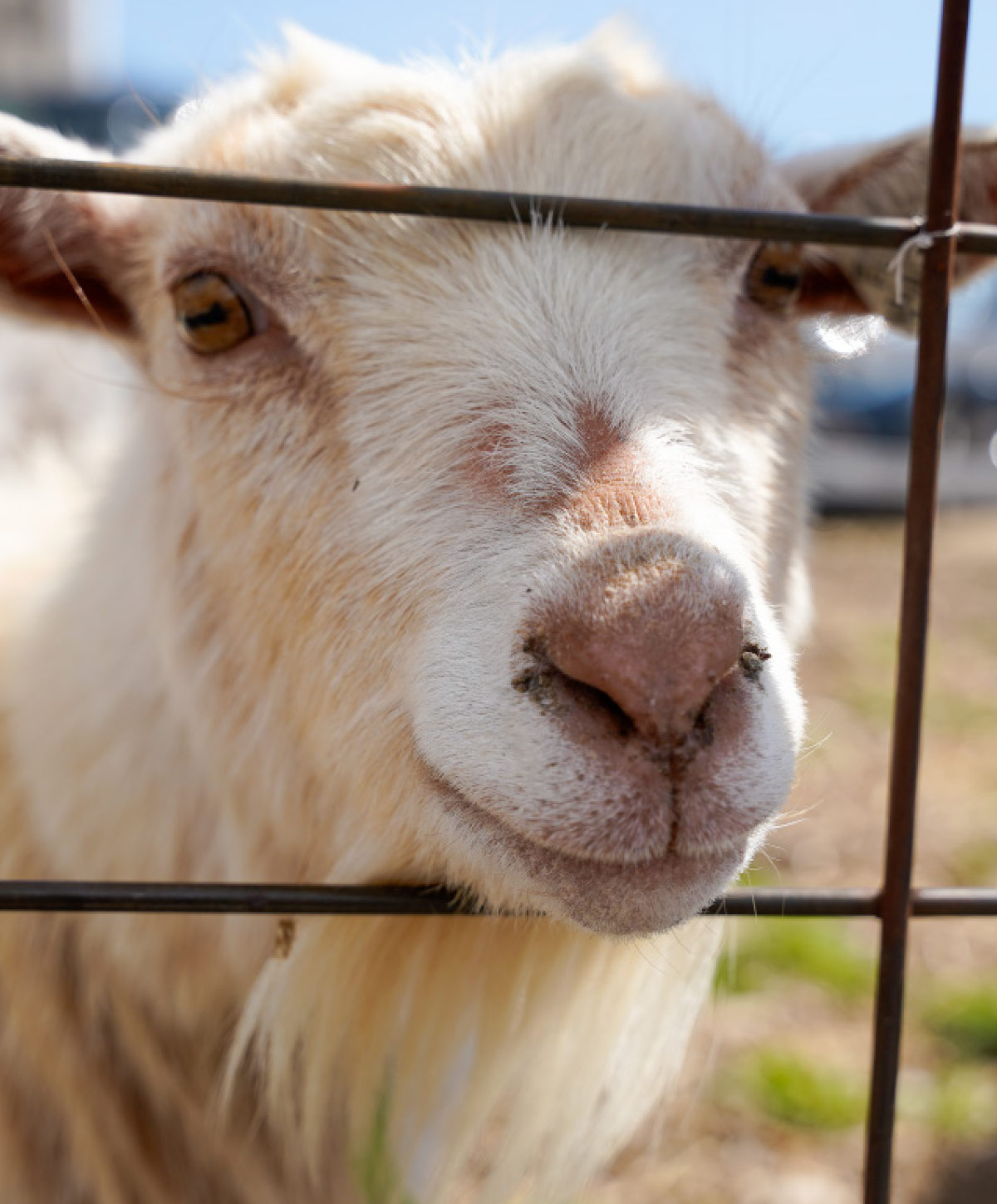
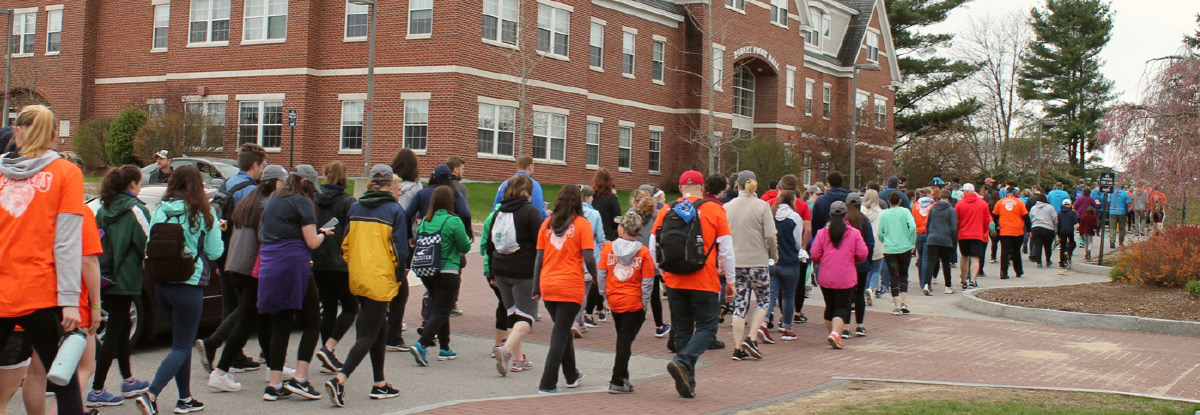
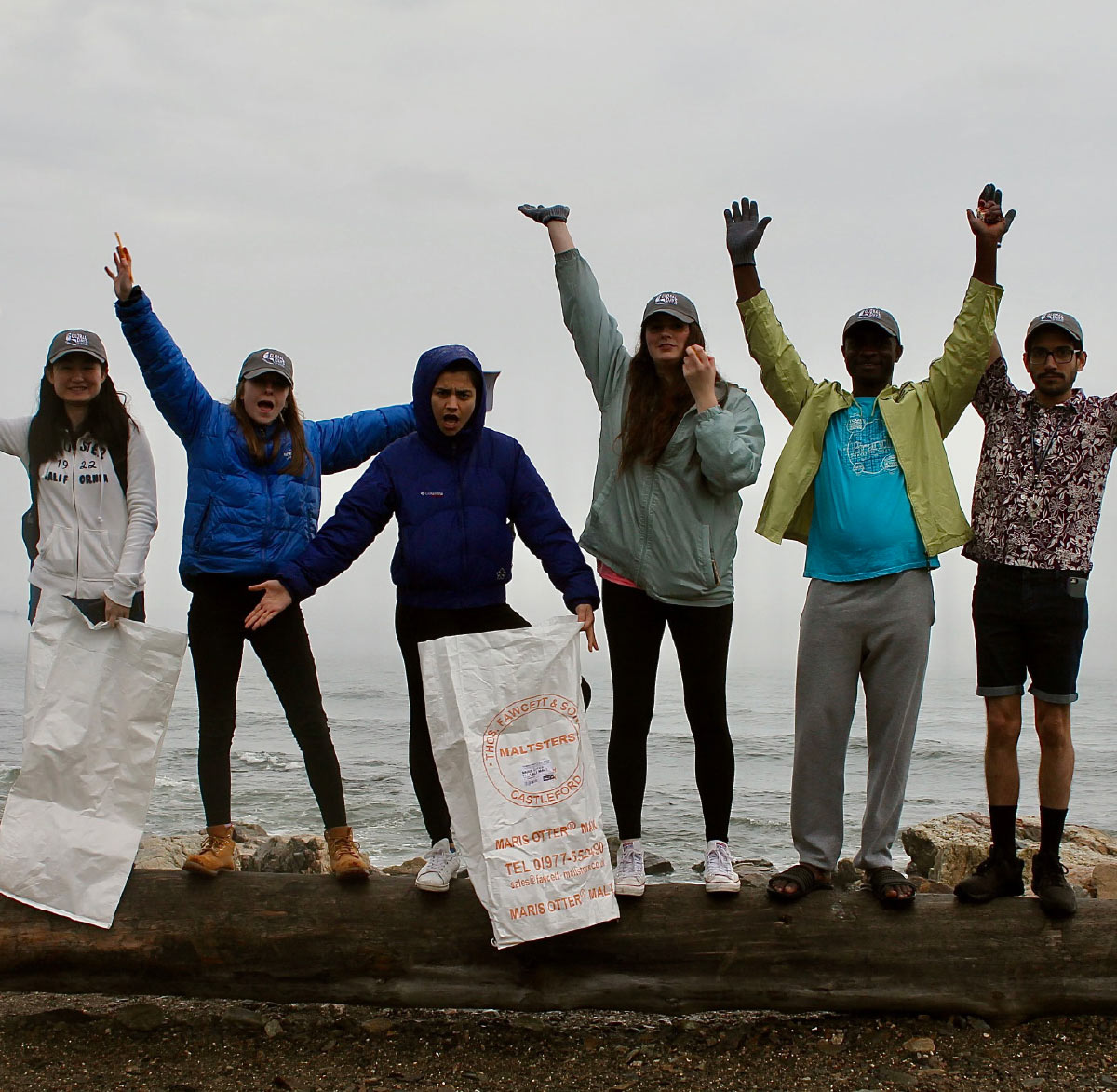
alumni.snhu.edu/serve
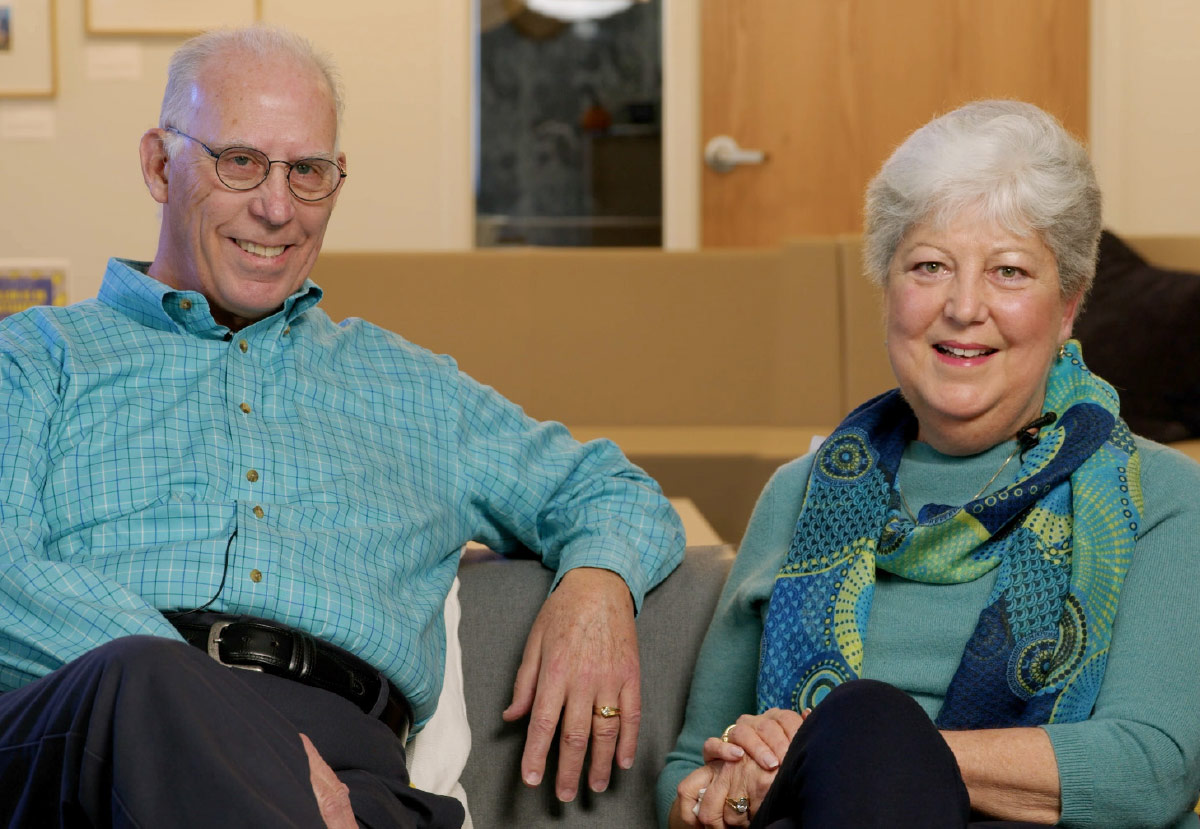
Why We Give
Laurie Chandler ’89MBA says her passion for education stems from a lesson instilled by her great-grandmother who lived through the Great Depression: education is a gift that “can’t be taken away.” That belief deepened as Laurie joined the university’s board, gaining a fuller appreciation for its mission and potential. Laurie and her husband Clarke created The Chandler Center, a hub for transformative learning experiences that extend far beyond the classroom. Laurie’s personal experiences traveling abroad underscored the importance of seeing the world through a direct lens, a passion she now shares with students. “The world seems really big when you’re a student. The more we know, the more worldly we are, the better stewards we become of the world around us,” she said.
Laurie and Clarke continue to give because they’ve witnessed the profound impact their contributions make. From letters written by students to emotional conversations during their frequent campus visits, they see how service-learning trips and local community engagement programs are shaping thoughtful, globally aware leaders. “These last several [visits], neither one of us leave without crying. The experiences shape these students into someone who’s making an impact on society,” Laurie shared. For Clarke, the joy lies in seeing the results firsthand: “To be able to meet with the staff and students to see our donation in action has been pretty powerful for the two of us.”
Laurie encourages starting with a simple conversation to explore your values and align them with opportunities to make a lasting impact. Contact giving@snhu.edu to learn more.


